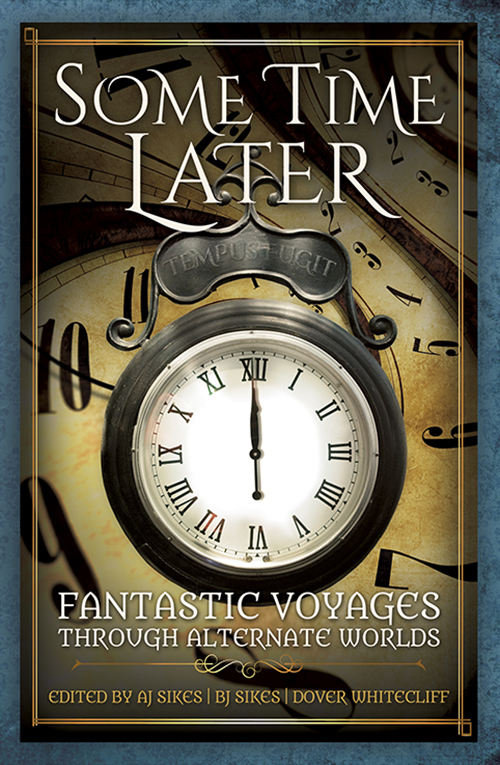Milestones are coming. And the first of these is catching up on my wordcount for my Nanowrimo project this November, BOT NET!
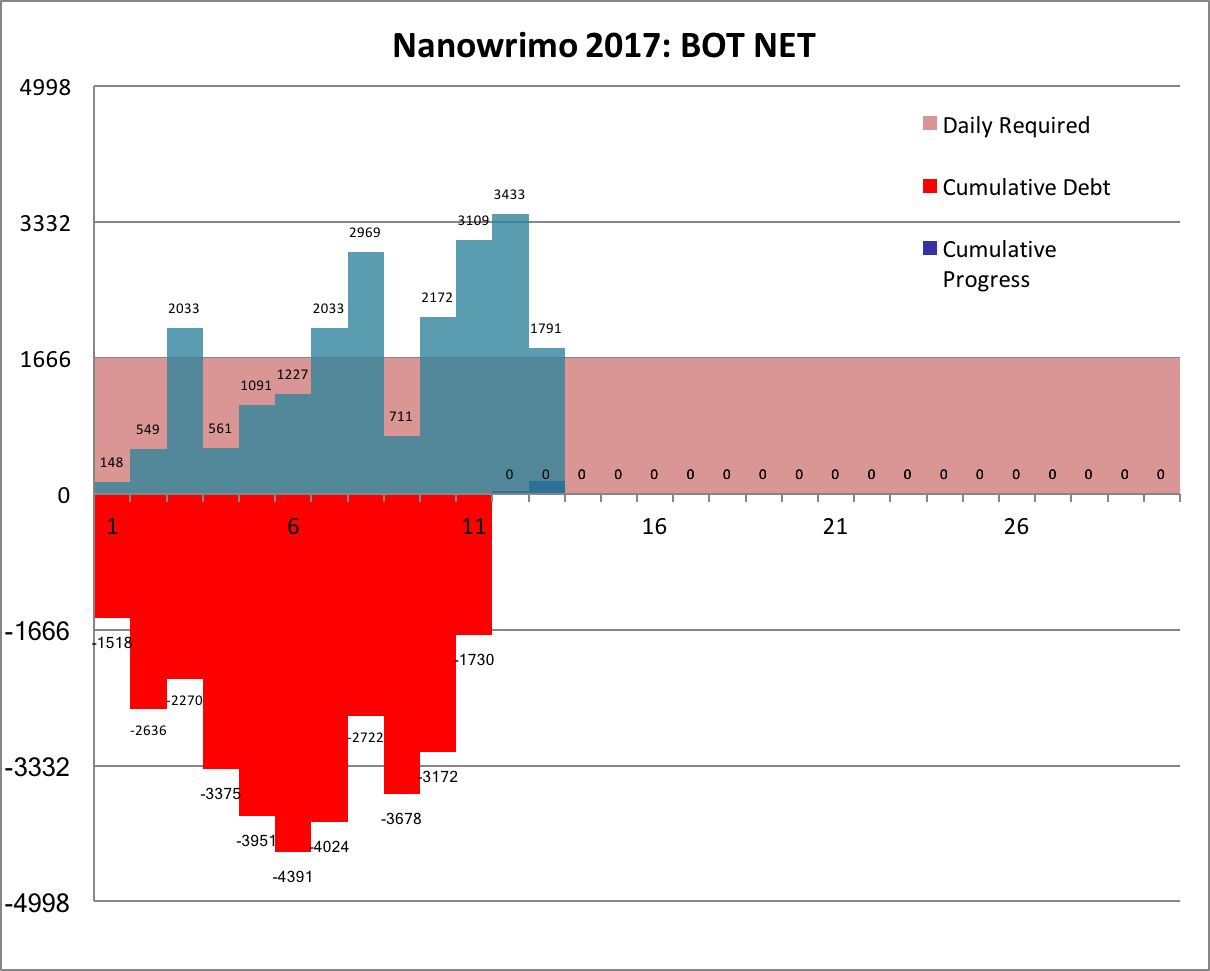
Winning at Nano always feels like climbing a hill, but for me in particular it almost always feels like I start out sliding back down, Sisyphus-like, as I struggle to get a handle on the story.
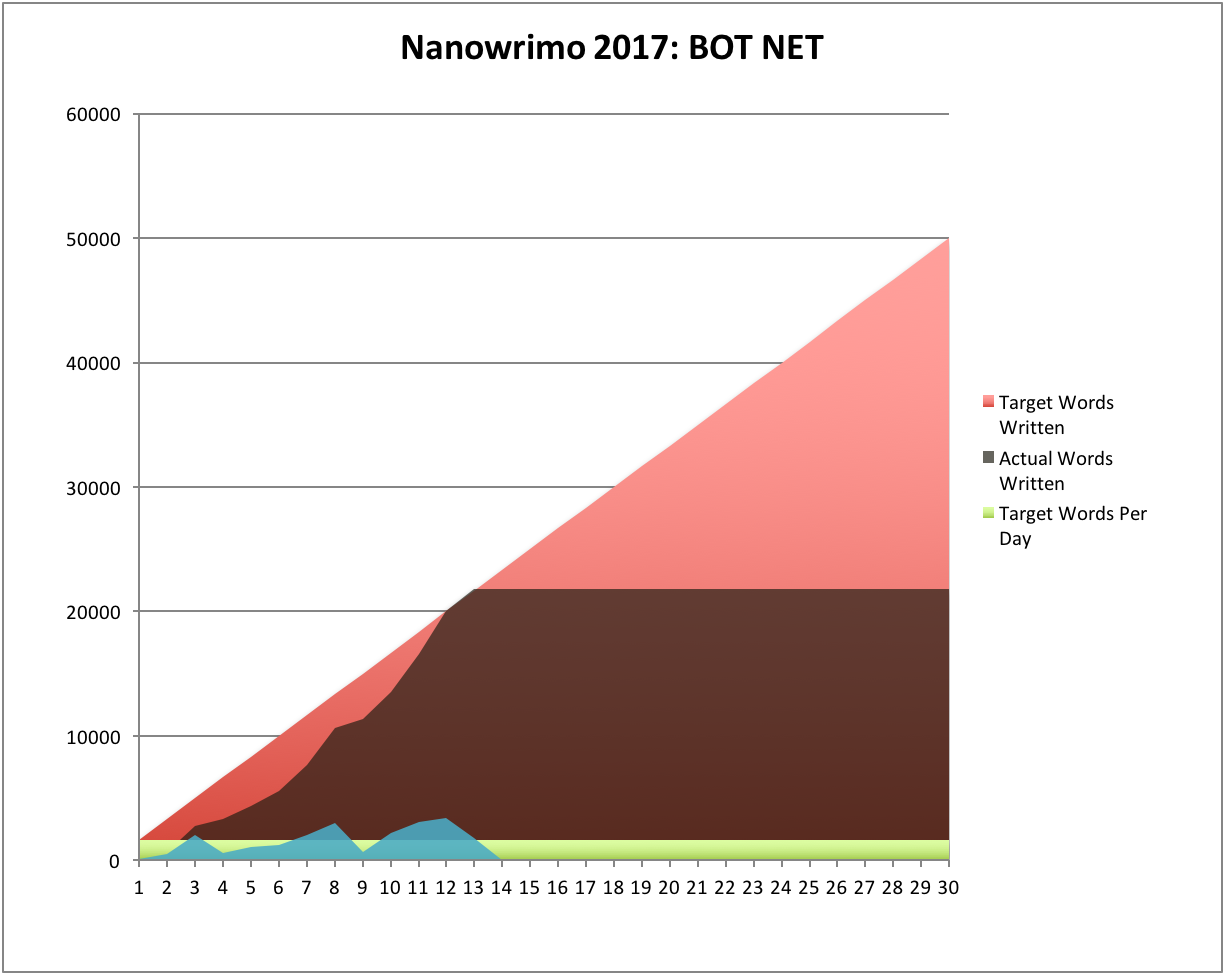
But then there comes that magic point where I need to write 1,666 words in a day and I. Got. Nothing. Then I'm forced to be creative, and the real fun stuff happens, an event I call "going off the rails". Hey, let's try to embed a tweet!
So now things are back on track for the month, and I'm smack in the middle of where I normally am this time of Nano ... Actually, it appears I'm ahead. Checking the stats ... yep. At this point, I'm normally just shy of 6,000 words behind ( -5,984, though that estimate is numerically precise, it is not likely to be meaningfully accurate ) but today I am 169 words ahead of the Nano wordcount:
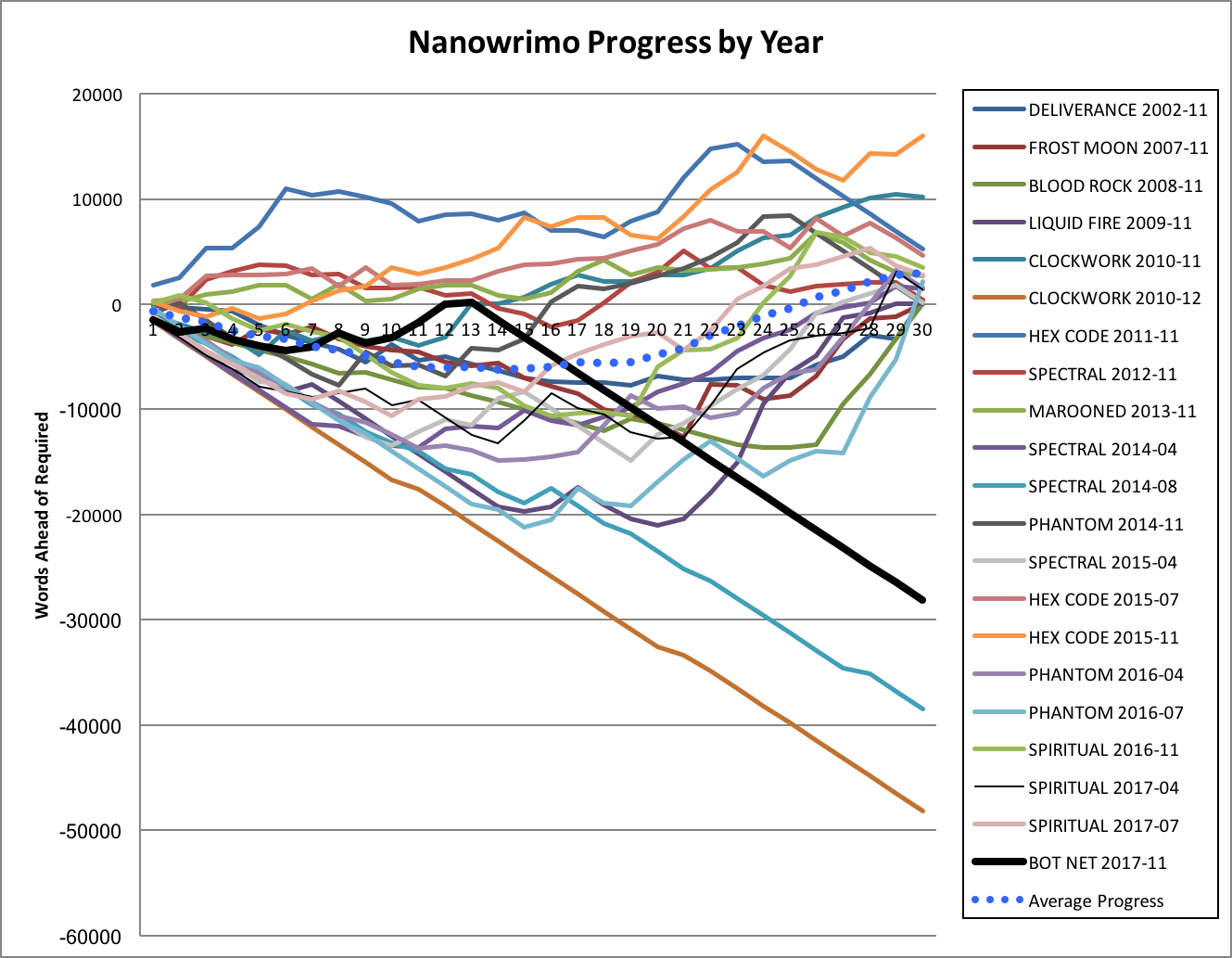
I'm one more thing too: 200,000 words into the Cinnamon Frost trilogy.
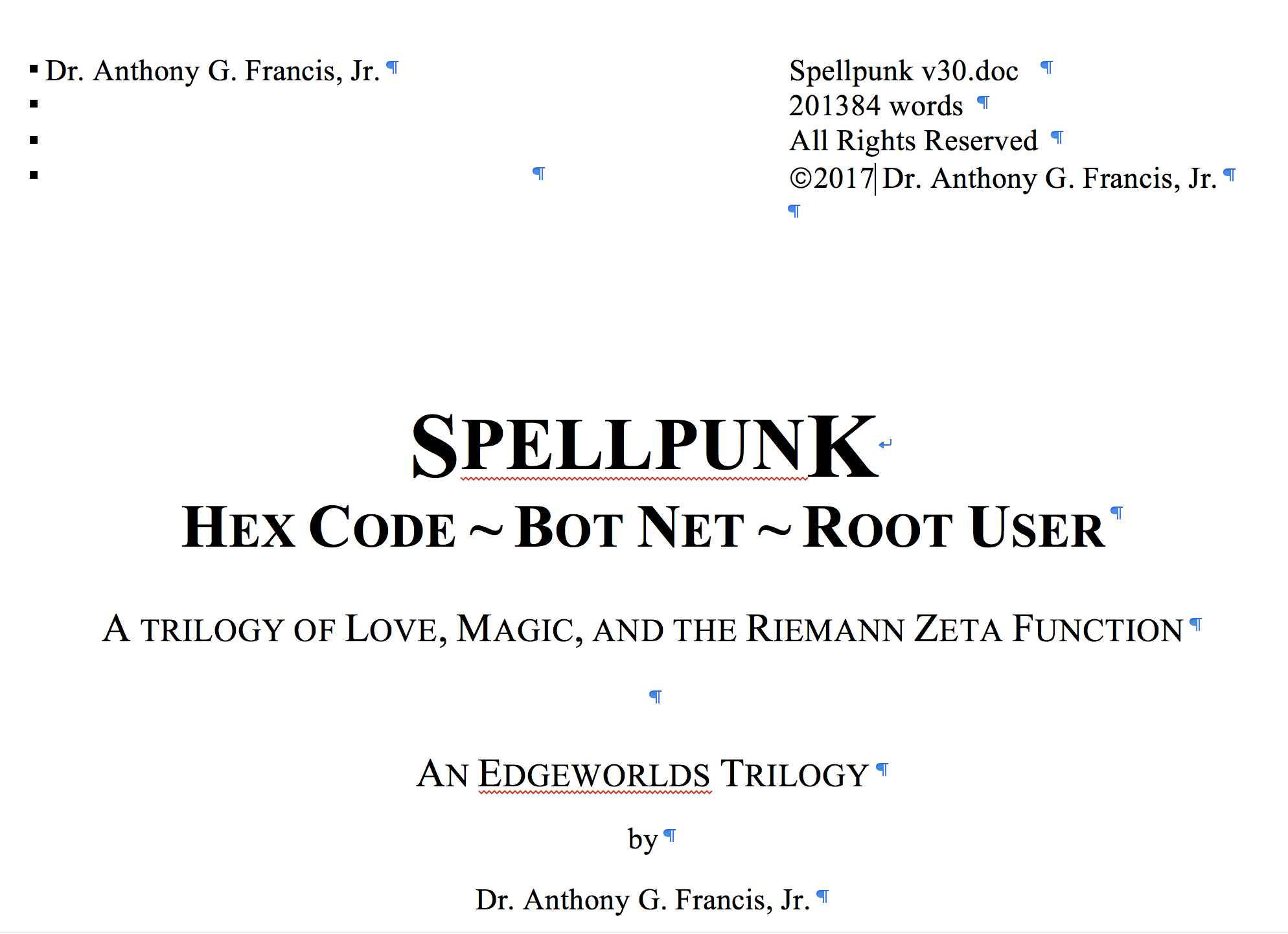
There are 3 published Dakota Frost novels:
FROST MOON,
BLOOD ROCK and
LIQUID FIRE, and three more finished rough drafts: SPECTRAL IRON, PHANTOM SILVER, and SPIRITUAL GOLD. By my count, I've written about 900,000 words about Dakota Frost, Skindancer, the woman who can bring her tattoos to life. But in one sense, that's expected: I planned Dakota. I wanted to write a character that other people who can relate to.
Cinnamon Frost, as I've said before, is a character I never expected. She shoved her way into the Dakota Frost universe, in one of those "step off into space moments", and she shows no signs of leaving.
Cinnamon might say 200,000 seems significant because of how humans process patterns - how we love all those zeroes - but it's just a number: 2*10*10*10*10*10. But somehow, it feels right to take it this far, and I look forward to writing the next 100,000 to 150,000 words that will finish her trilogy and give her a chance to live her own literary life.
Time to get back to it.
-the Centaur
P. S. I said milestones are coming. If you've read closely in this post, you'll realize another milestone is coming soon. Stay tuned ...
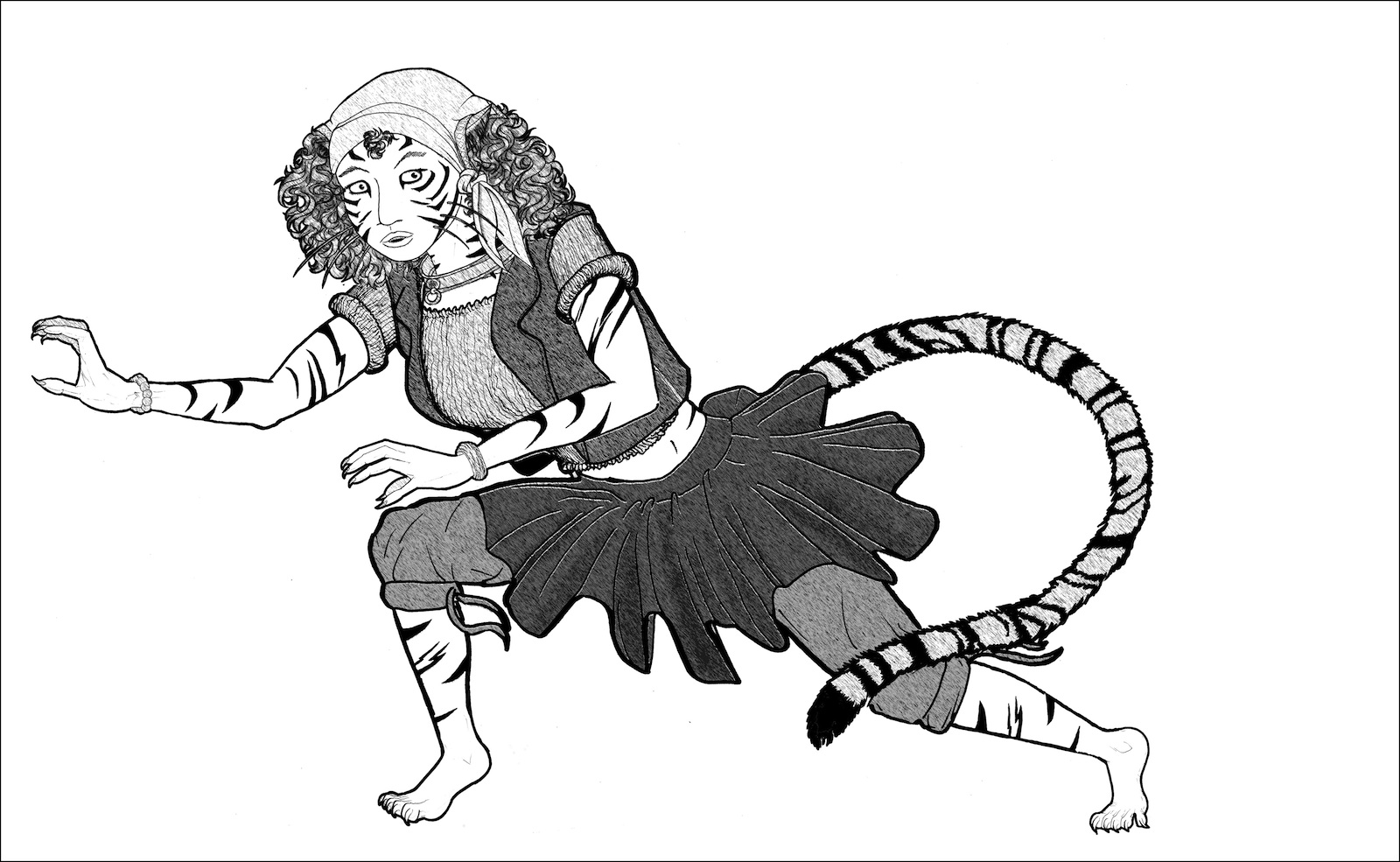 And I'm supposed to tell you that my biographer, Anthony Francis, is working on my third book, ROOT USER, for Camp Nanowrimo! Camp is the sister challenge to the November challenge to write 50,000 words in a month, and that sounds crazy unless you are my brother and love writing words, and are not dyslexic and ADD and whatever, and what was I saying? SO! Anyway. My biographer's busy writing, or something. So you get me! Except, um, I gots nothin', except, hey, I'm a teenage weretiger, and this is my third book! The first two ain't out yet, but this one has monsters and high school and kids straight out of Harry Potter and yummy yummy wereguys fightin' over the me. Choice! I am awesome, if I do say so myself about myself. Hee hee!
What? Oh! Ok. My biographer is askin' me to post an excerpt or somethin', so, here goes:
And I'm supposed to tell you that my biographer, Anthony Francis, is working on my third book, ROOT USER, for Camp Nanowrimo! Camp is the sister challenge to the November challenge to write 50,000 words in a month, and that sounds crazy unless you are my brother and love writing words, and are not dyslexic and ADD and whatever, and what was I saying? SO! Anyway. My biographer's busy writing, or something. So you get me! Except, um, I gots nothin', except, hey, I'm a teenage weretiger, and this is my third book! The first two ain't out yet, but this one has monsters and high school and kids straight out of Harry Potter and yummy yummy wereguys fightin' over the me. Choice! I am awesome, if I do say so myself about myself. Hee hee!
What? Oh! Ok. My biographer is askin' me to post an excerpt or somethin', so, here goes:
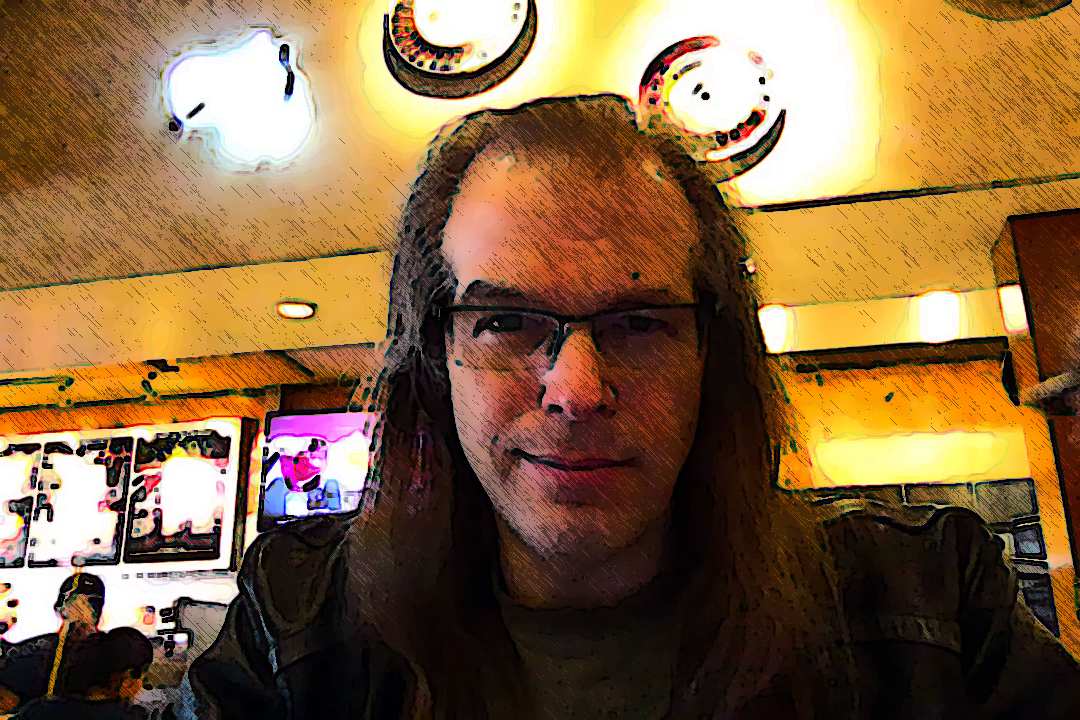 I prefer pictures of food to pictures of myself, but, since my phone stopped charging and started shocking people (along with emitting a lovely BURNING smell) you get old stock footage or Photo Booth for the time being.
And now, the currents:
I prefer pictures of food to pictures of myself, but, since my phone stopped charging and started shocking people (along with emitting a lovely BURNING smell) you get old stock footage or Photo Booth for the time being.
And now, the currents:
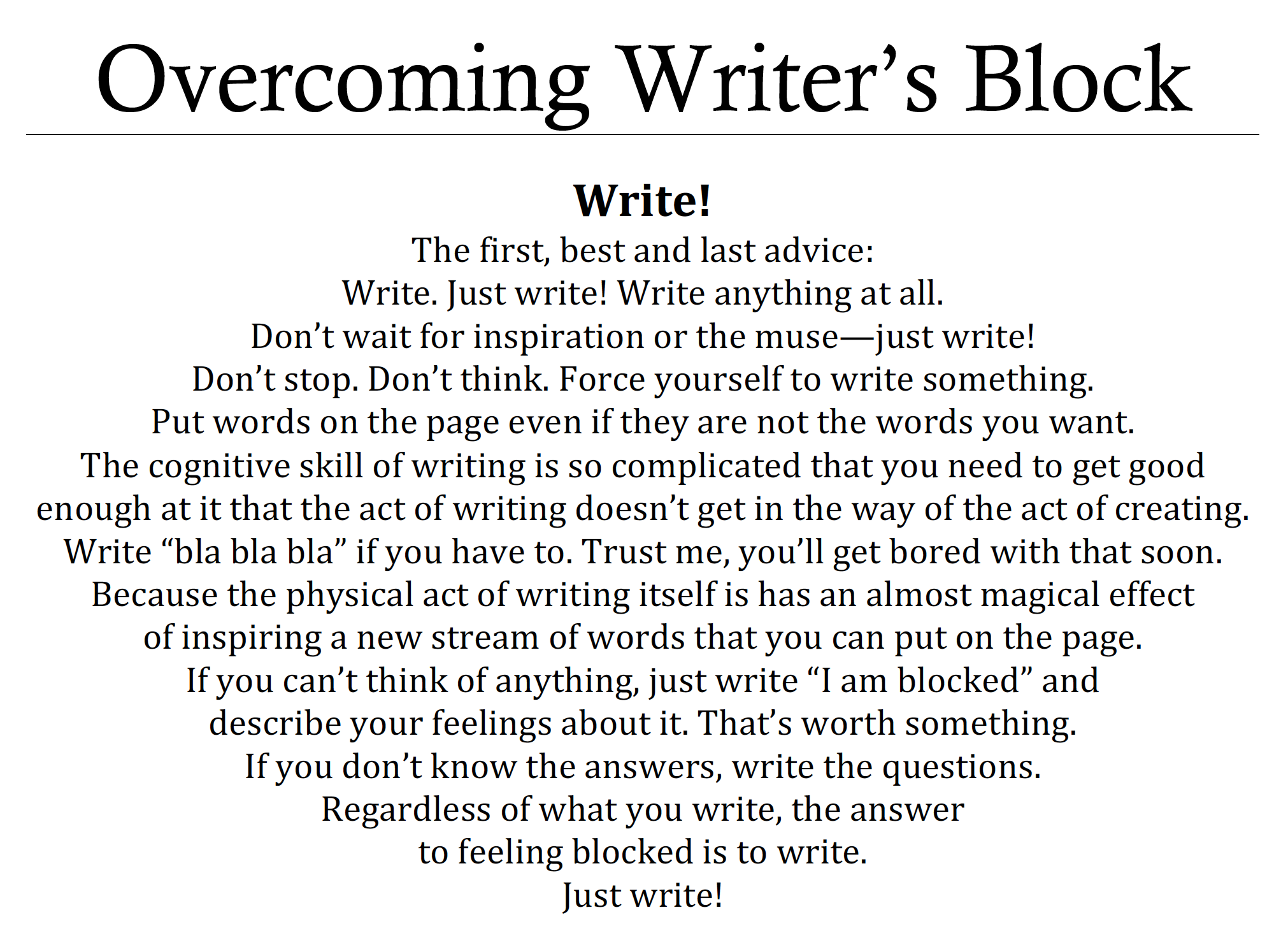
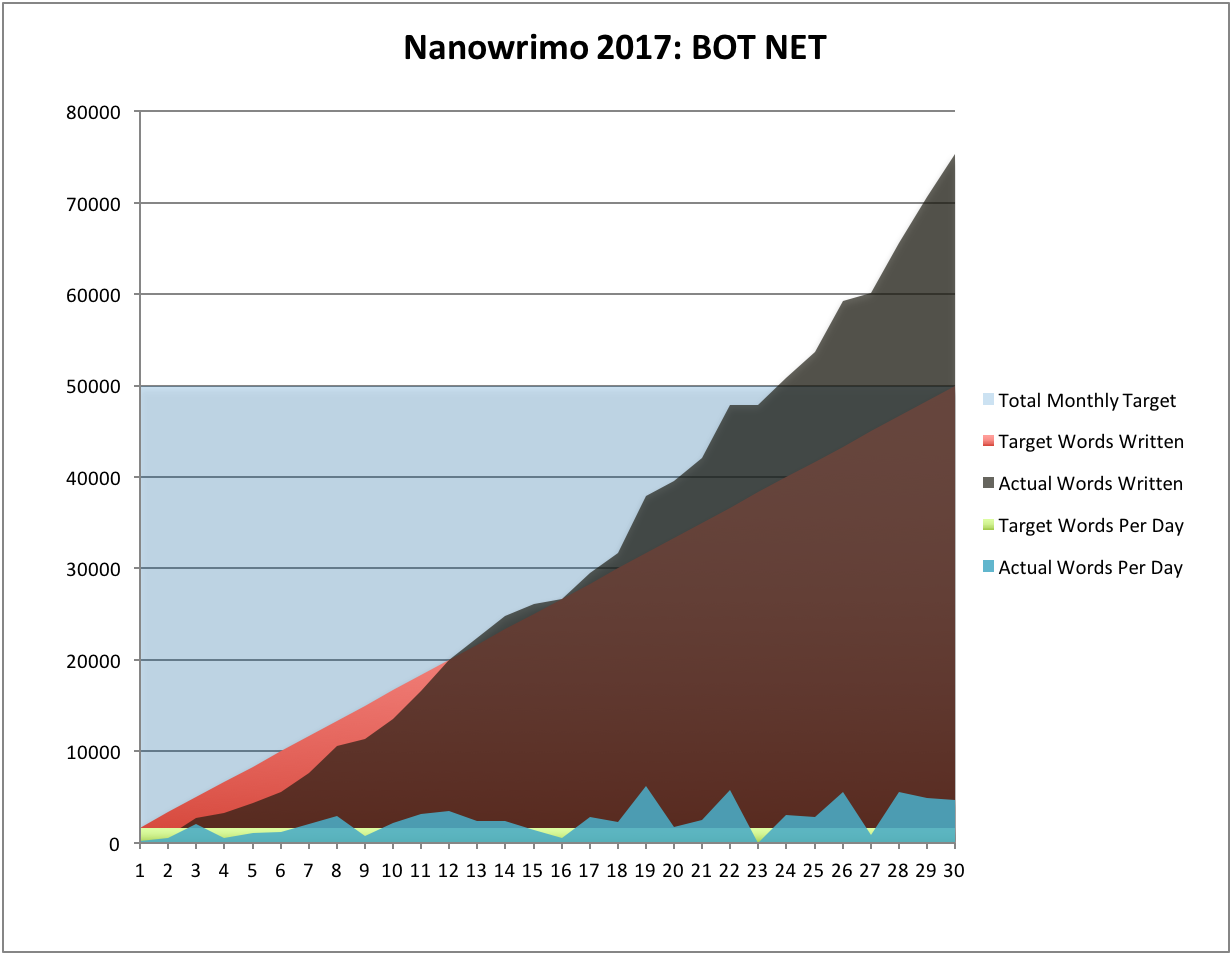 This somehow all magically happened because I never lost my momentum after the Night of Writing Dangerously, oh, and because this is Cinnamon Frost, and she's awesome!
This somehow all magically happened because I never lost my momentum after the Night of Writing Dangerously, oh, and because this is Cinnamon Frost, and she's awesome!
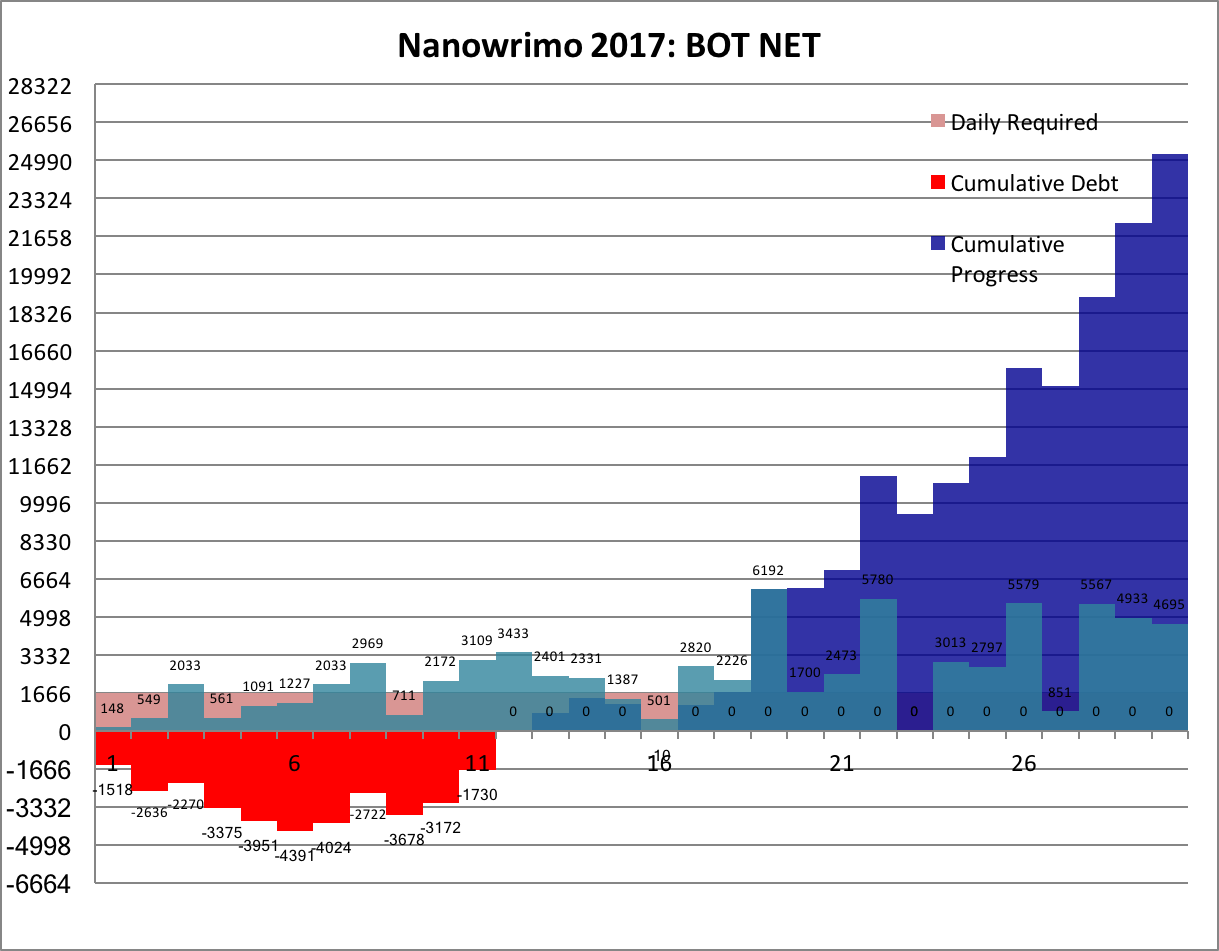 This is the most I've ever written in Nano, by a long shot - almost 10,000 words more. Not quite, and I'm not super motivated to make it exactly 10,000 words more. If I think of more words tonight, eh maybe.
This is the most I've ever written in Nano, by a long shot - almost 10,000 words more. Not quite, and I'm not super motivated to make it exactly 10,000 words more. If I think of more words tonight, eh maybe.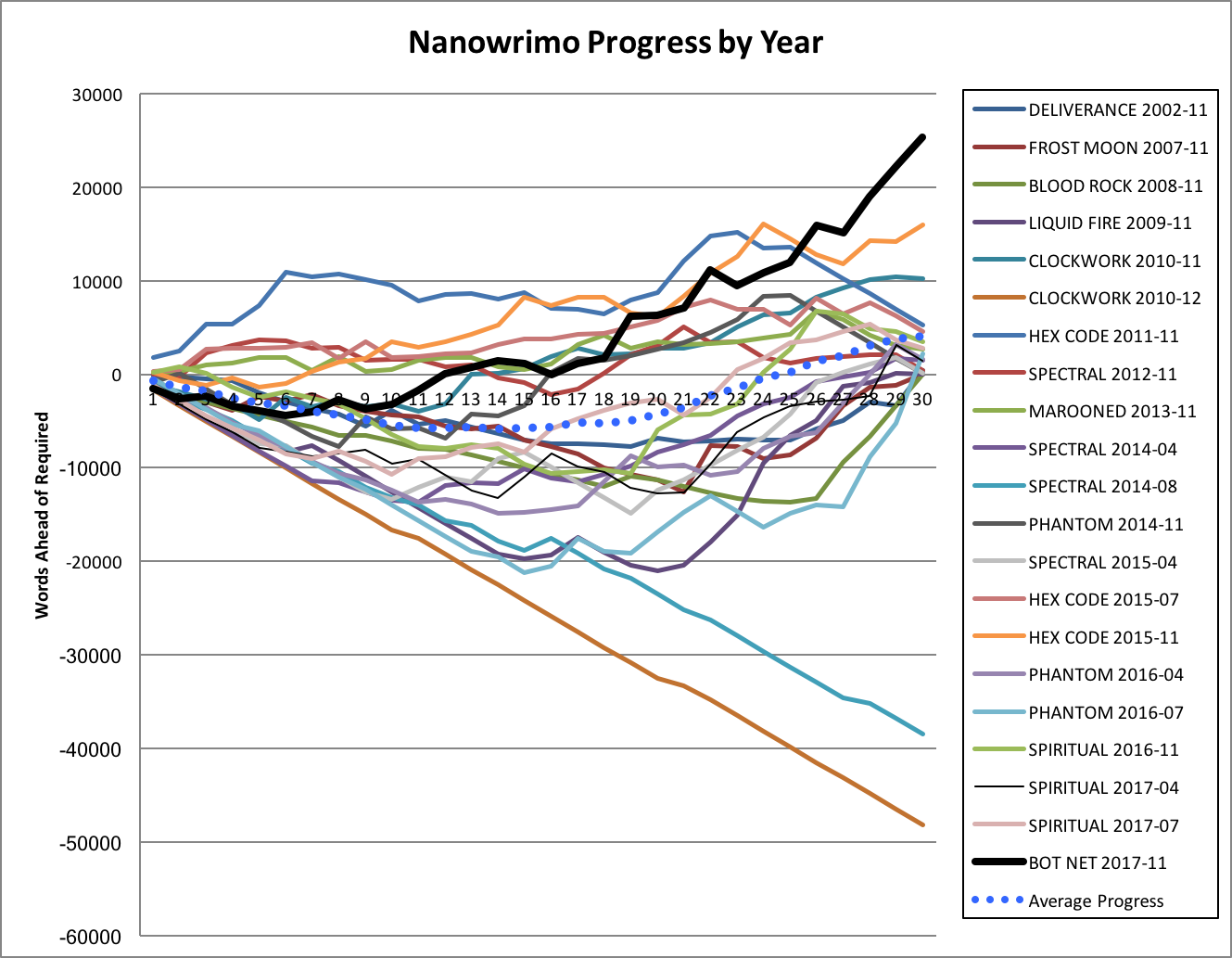 Oh yes, the traditional excerpt:
Oh yes, the traditional excerpt:
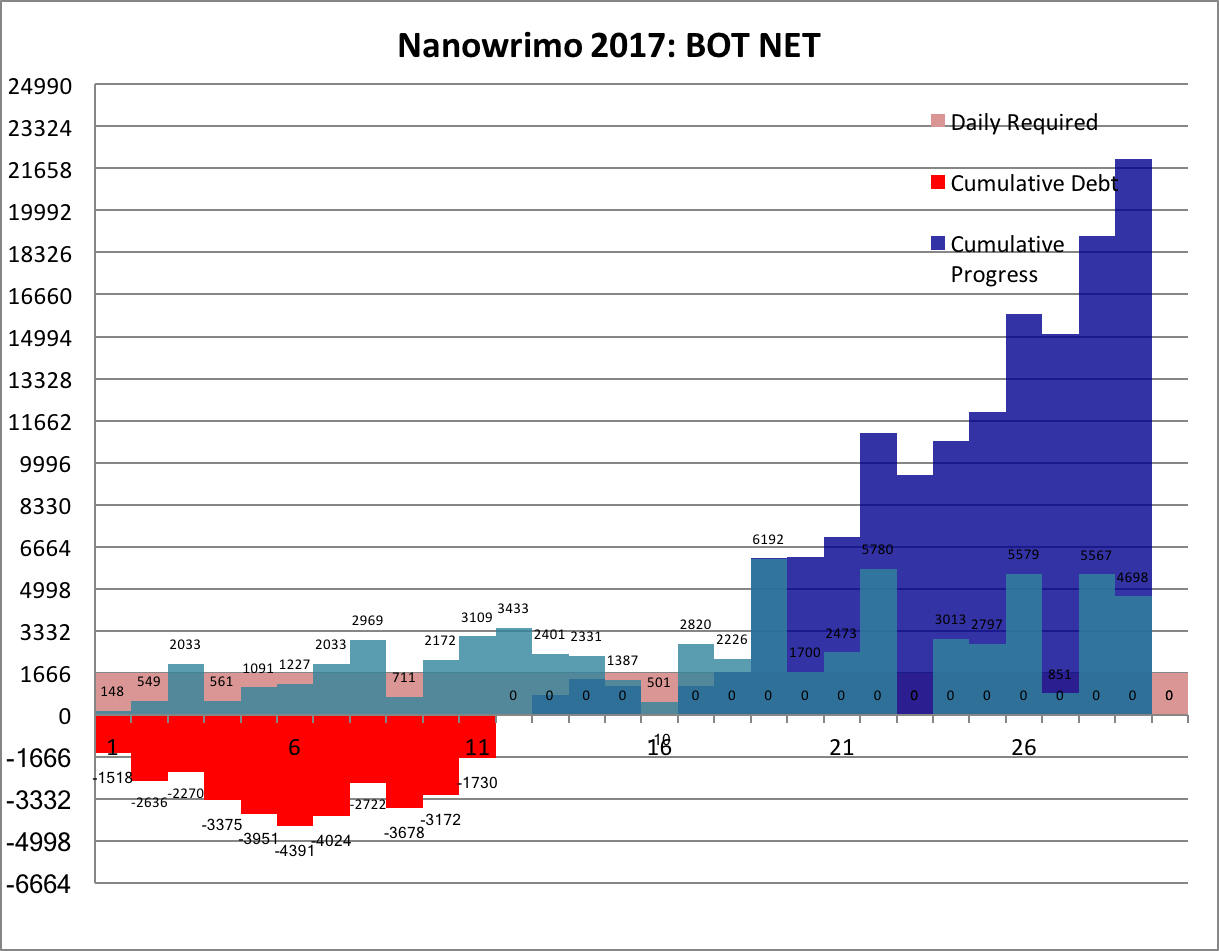 I won't just beat my best record ever (which I already have) ...
I won't just beat my best record ever (which I already have) ...
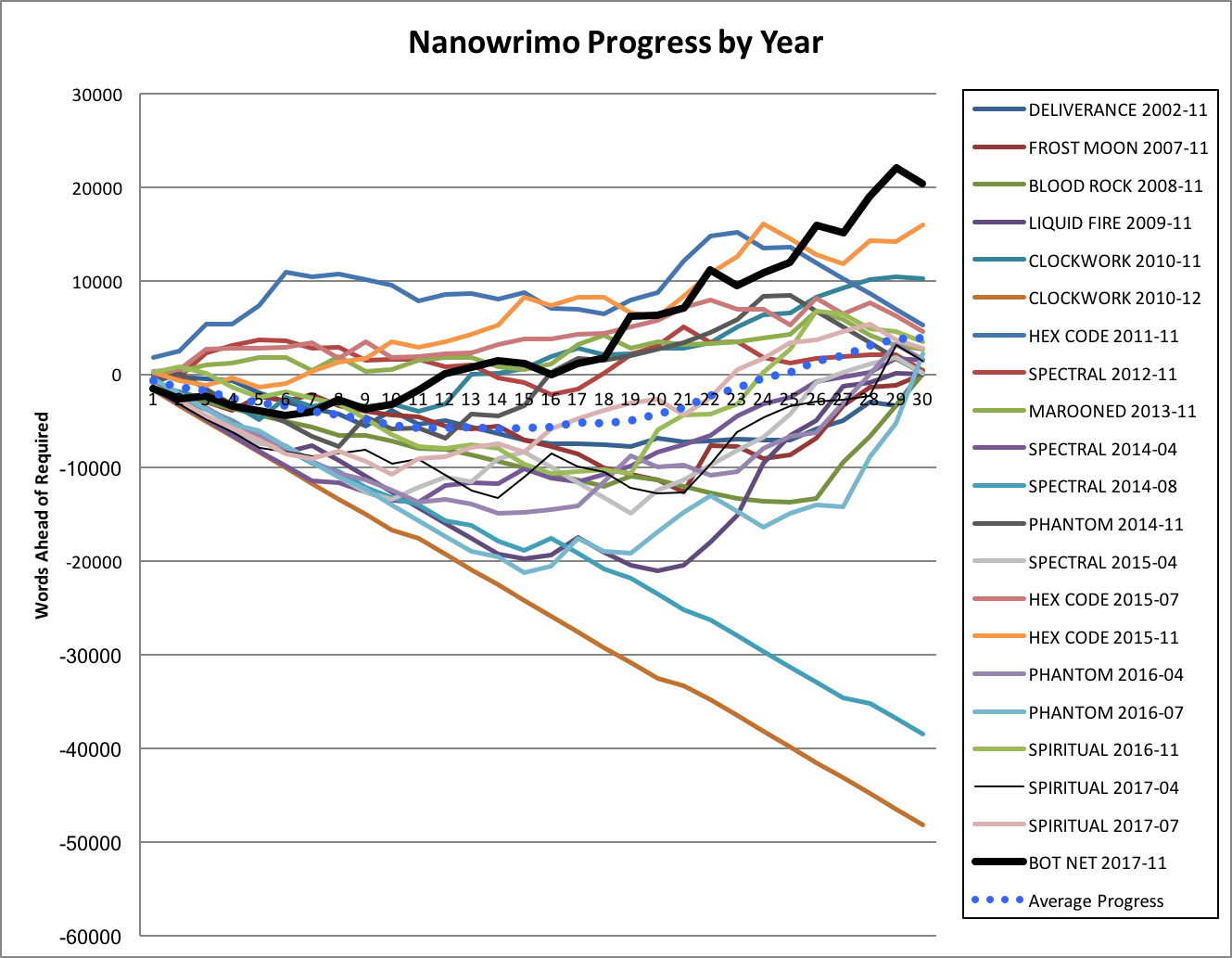 ... I'll hit the somewhat ludicrous amount of 75,000 words in a month, beyond the 70,000 I've already hit.
... I'll hit the somewhat ludicrous amount of 75,000 words in a month, beyond the 70,000 I've already hit.
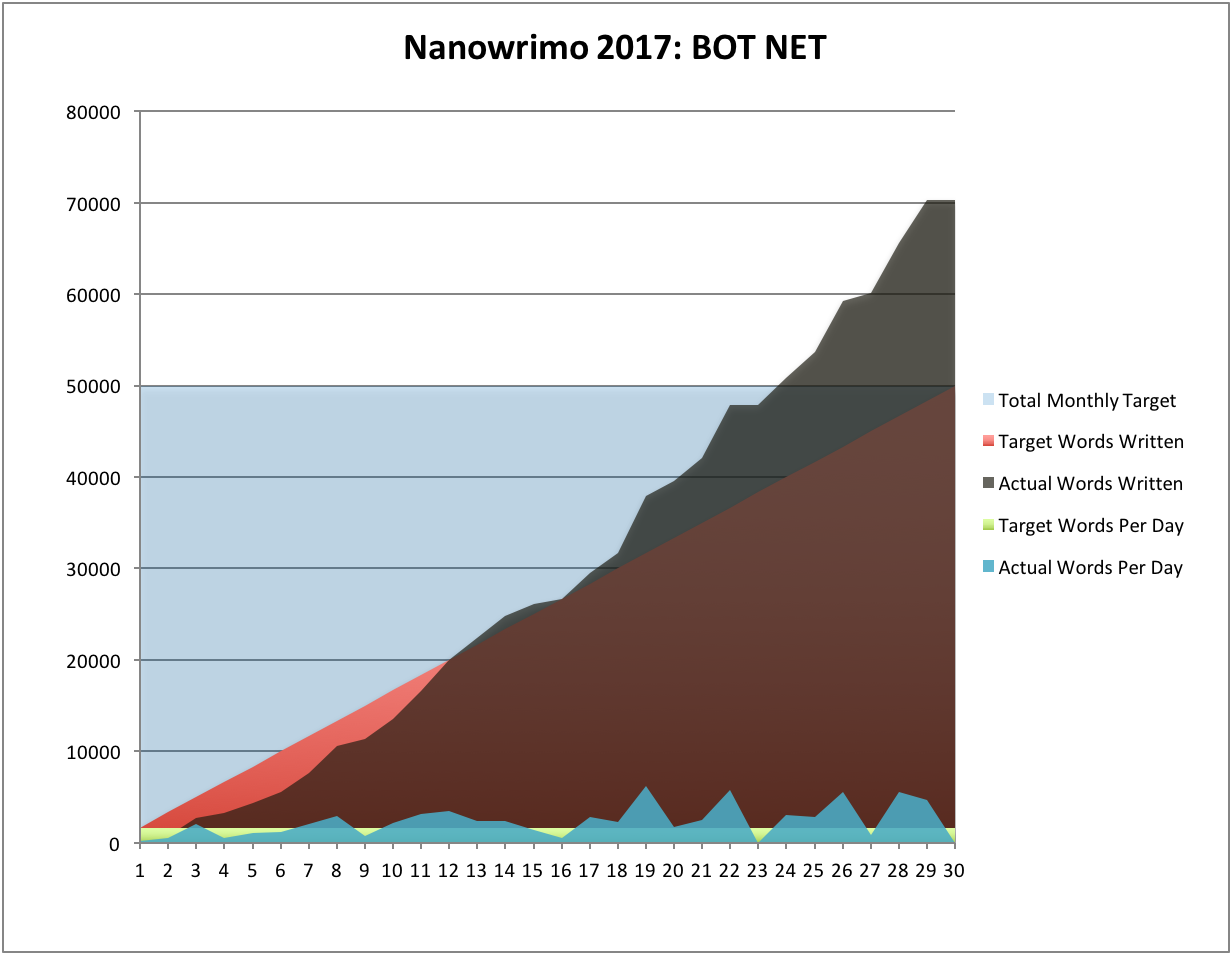 4,648 words to hit that goal ... less than I did yesterday or even today. Let's get cracking.
-the Centaur
4,648 words to hit that goal ... less than I did yesterday or even today. Let's get cracking.
-the Centaur 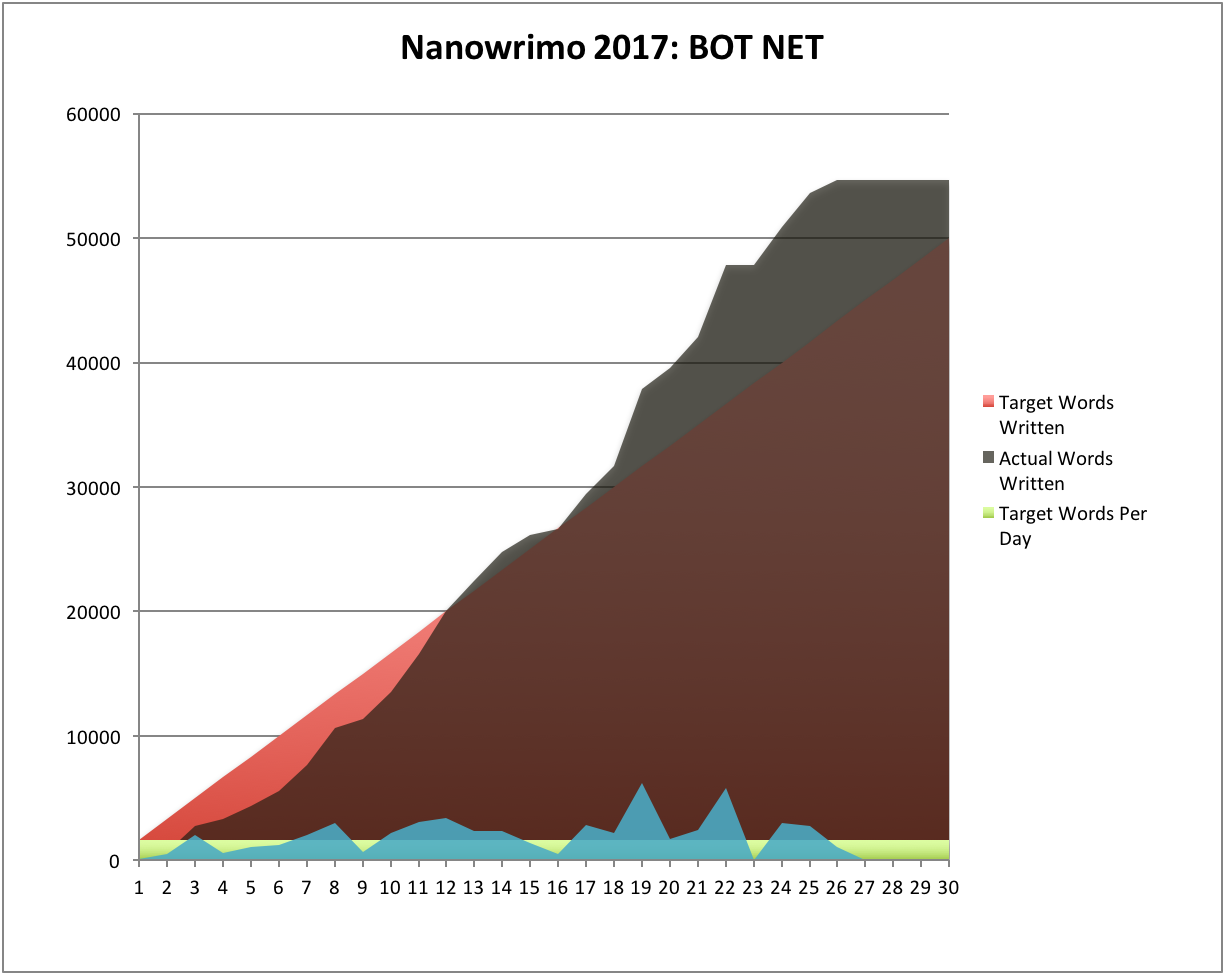 ~2900 words a day, not counting today ...
~2900 words a day, not counting today ...
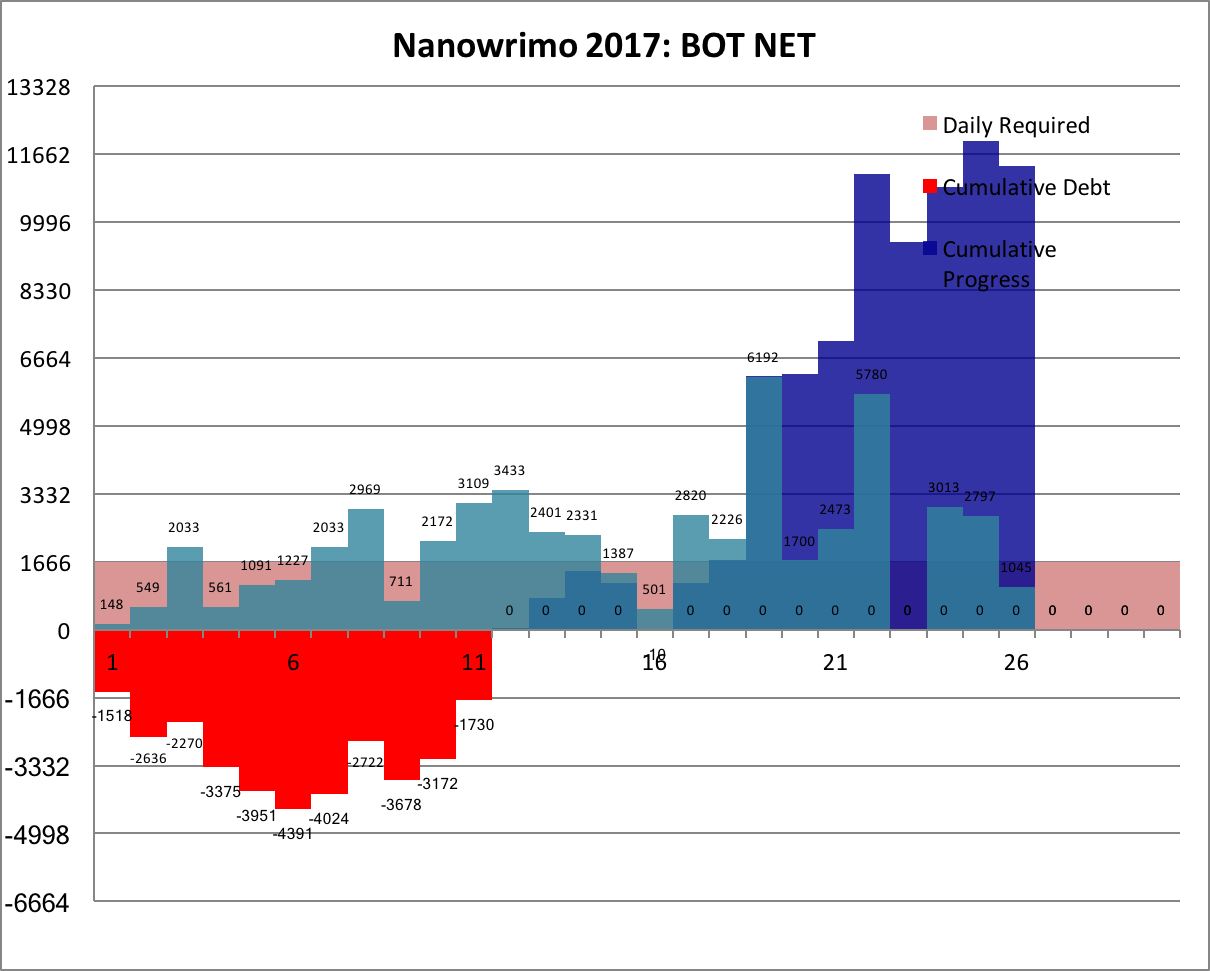 I will beat my all time Nanowrimo record of 65,995 words:
I will beat my all time Nanowrimo record of 65,995 words:
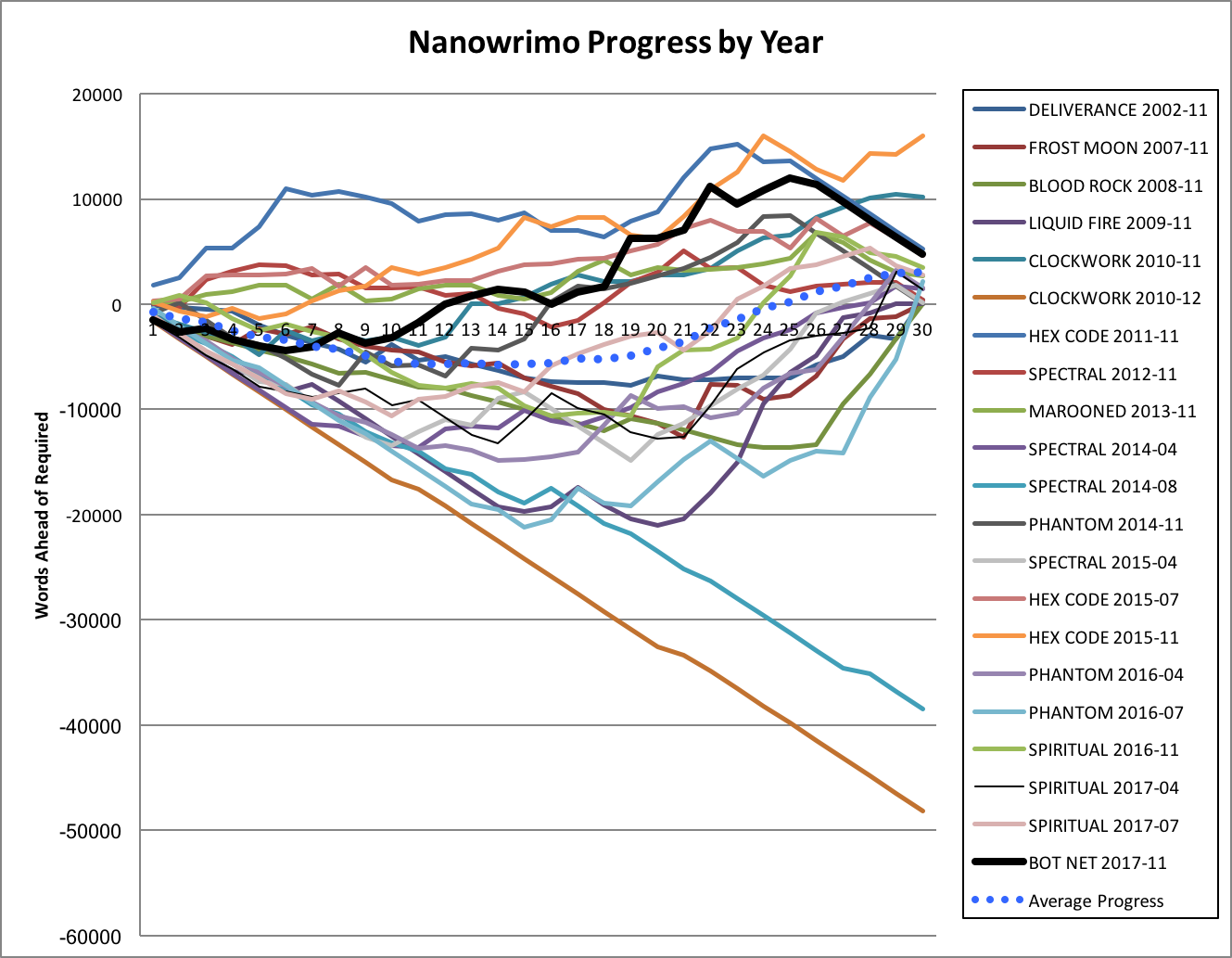 Sounds like a worthier goal than spending the same words responding to everyone who's wrong on the Internet.
Onward!
-the Centaur
Sounds like a worthier goal than spending the same words responding to everyone who's wrong on the Internet.
Onward!
-the Centaur 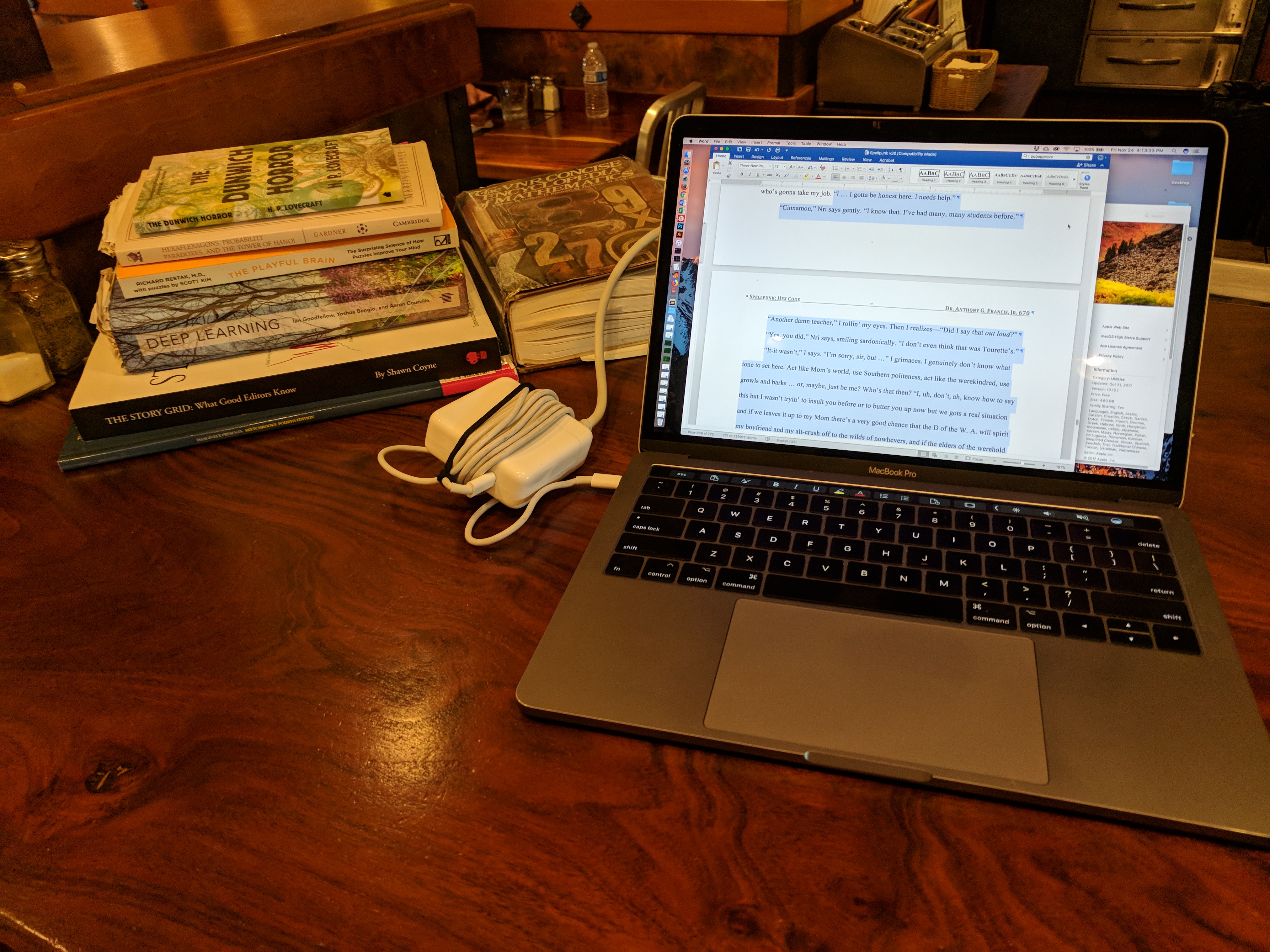 Hey gang, now that I've succeeded at National Novel Writing Month nineteen times, I thought I'd take a little time out to tell you that my secret to National Novel Writing Month success is to put Nano first.
Hey gang, now that I've succeeded at National Novel Writing Month nineteen times, I thought I'd take a little time out to tell you that my secret to National Novel Writing Month success is to put Nano first.
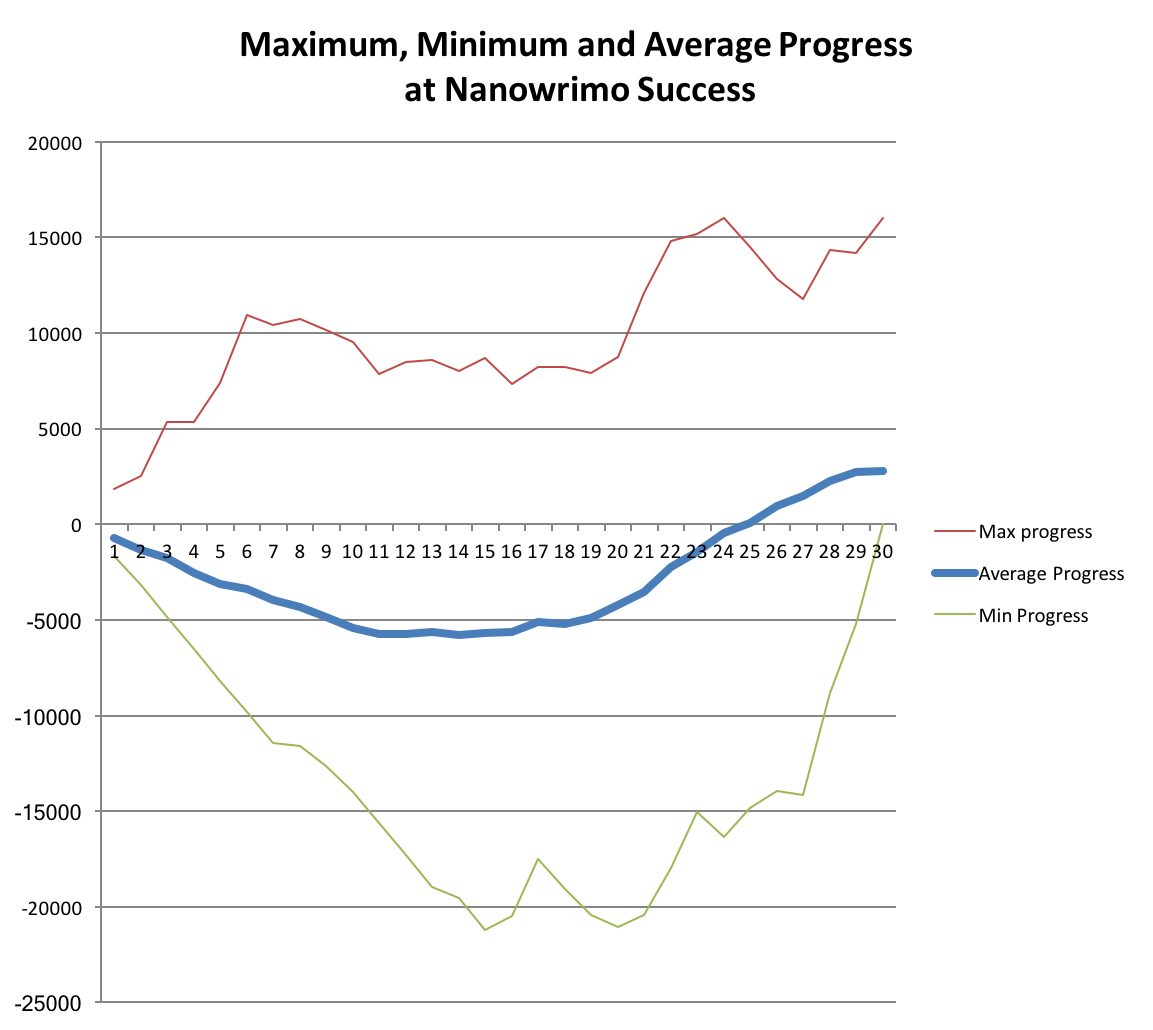 Now, that seems obvious - almost, like, too obvious to be advice - but I want to put it into perspective by first asking you a few questions.
Now, that seems obvious - almost, like, too obvious to be advice - but I want to put it into perspective by first asking you a few questions.
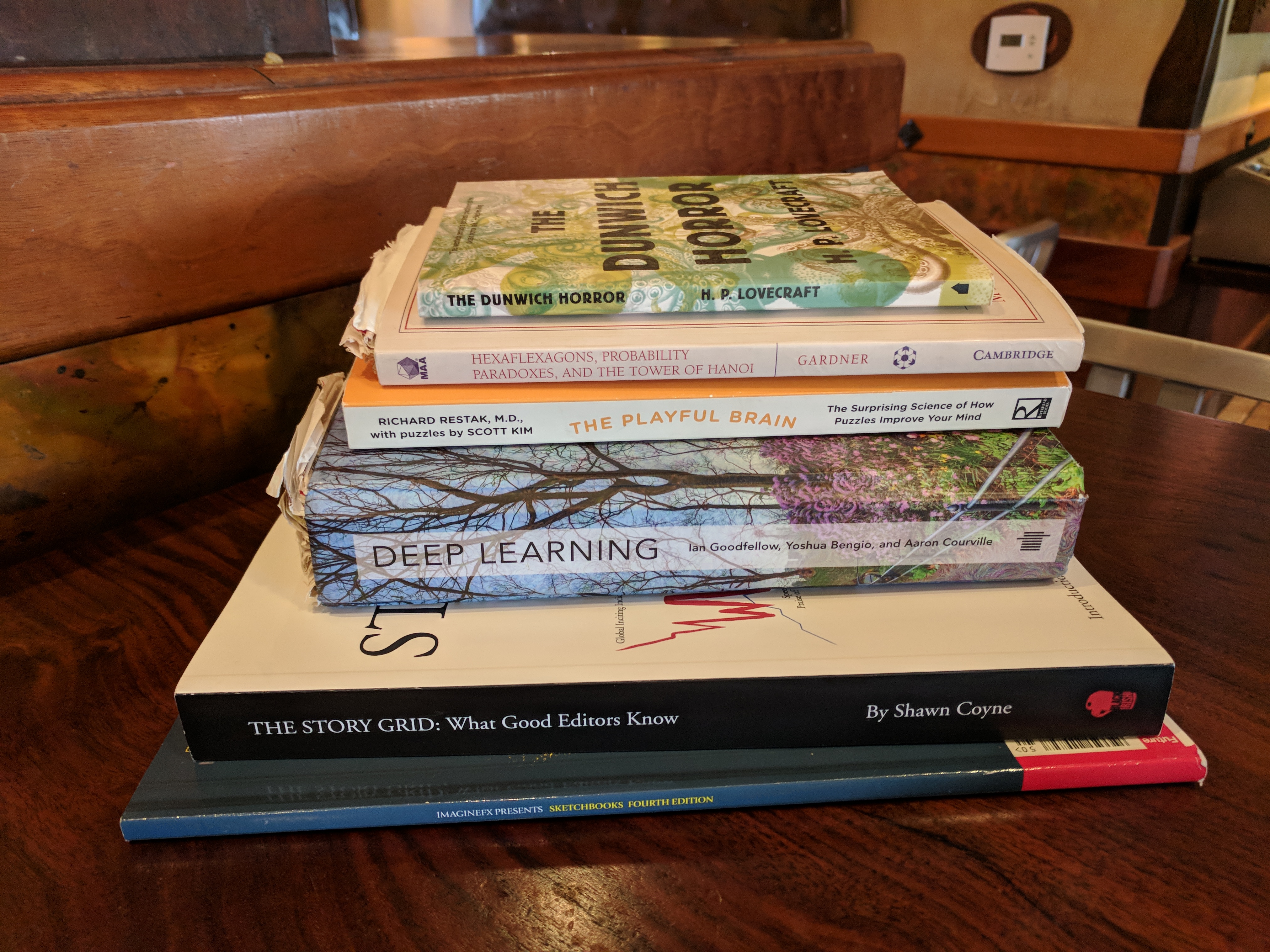
 This year, I was working on
This year, I was working on 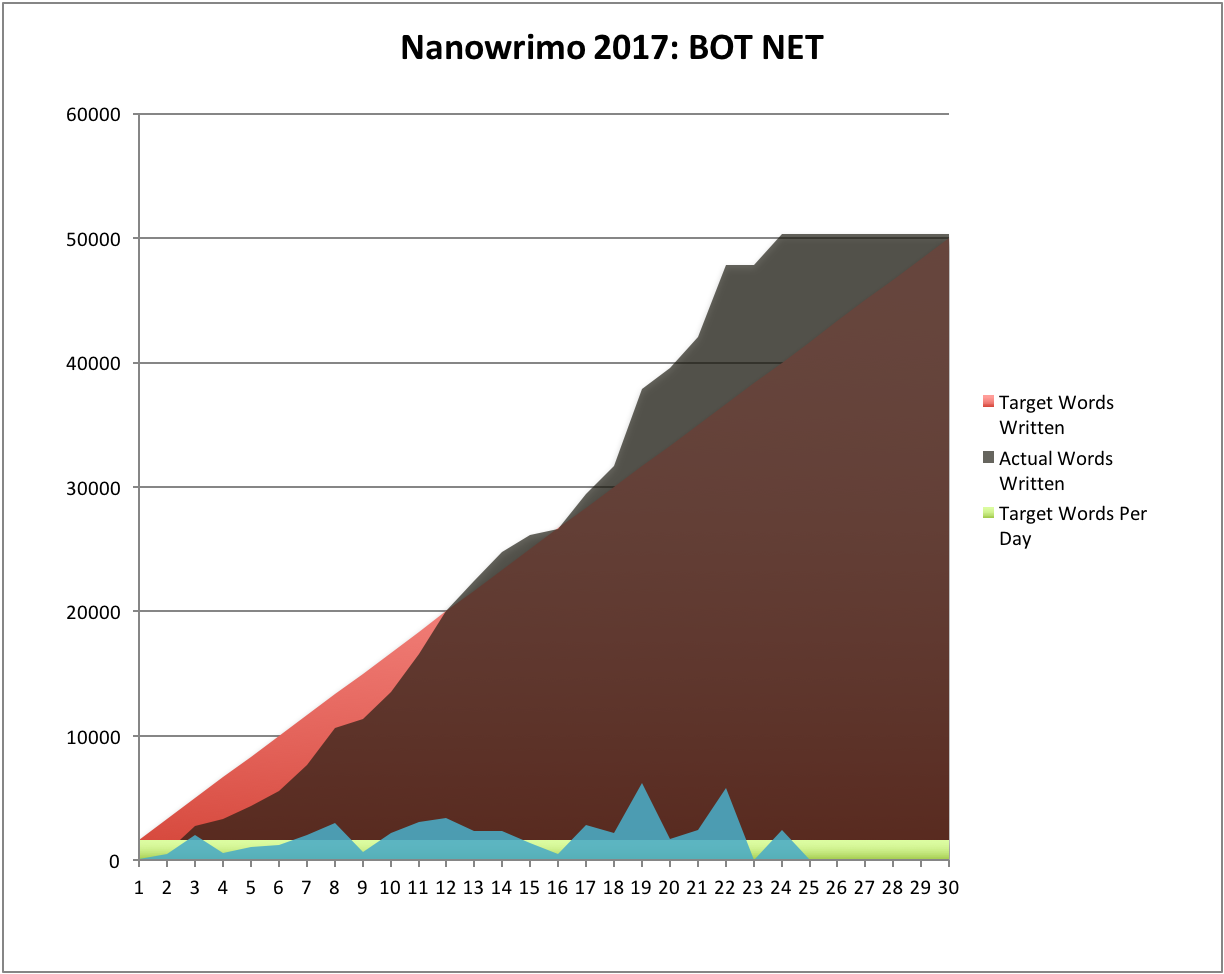 This year, the combination of participating in the
This year, the combination of participating in the 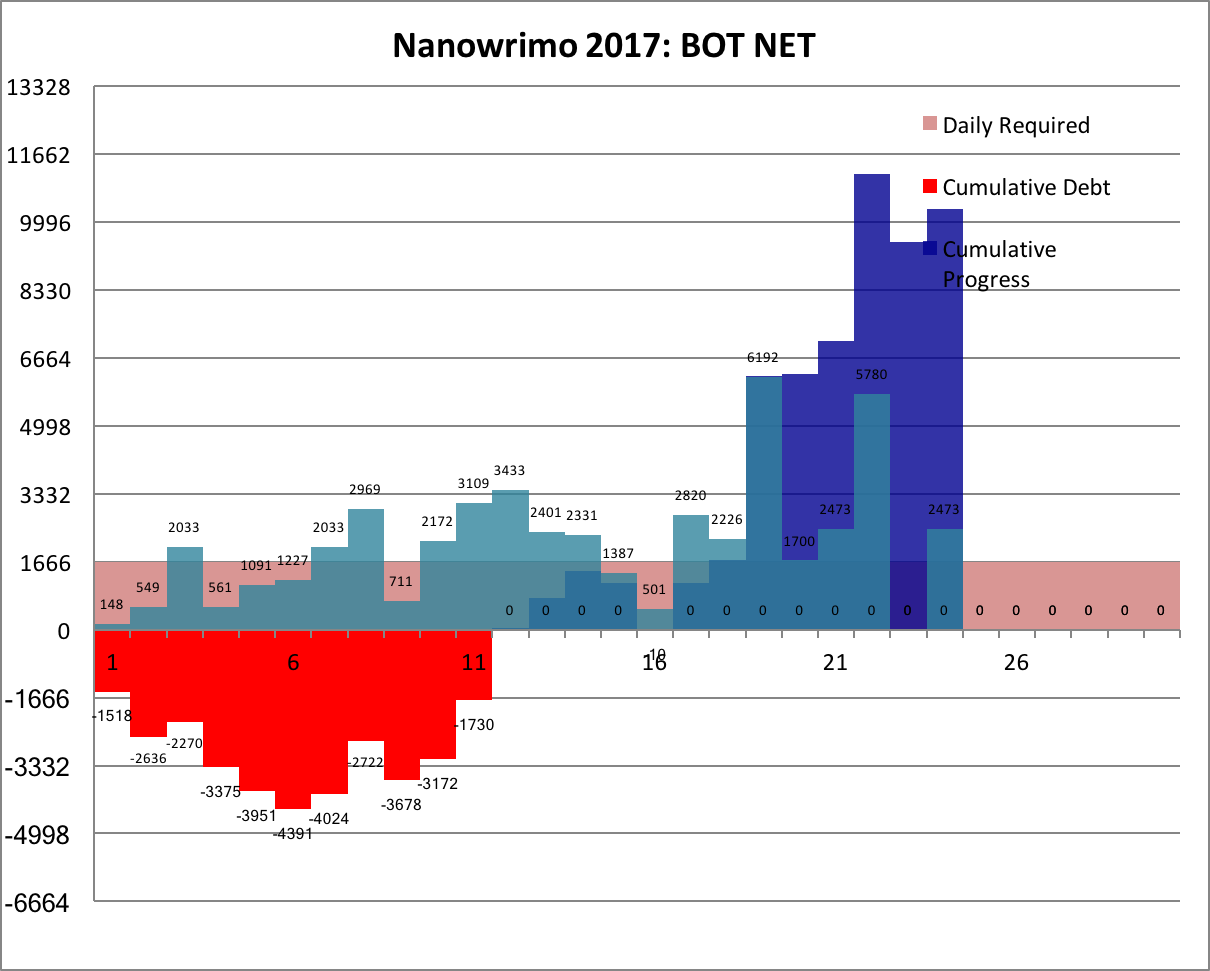 Interesting, the hole at Thanksgiving. I wonder if that's true every year? That's not something you can readily see when you look at the yearly charts since it moves (stay tuned, these charts are going to come back later):
Interesting, the hole at Thanksgiving. I wonder if that's true every year? That's not something you can readily see when you look at the yearly charts since it moves (stay tuned, these charts are going to come back later):
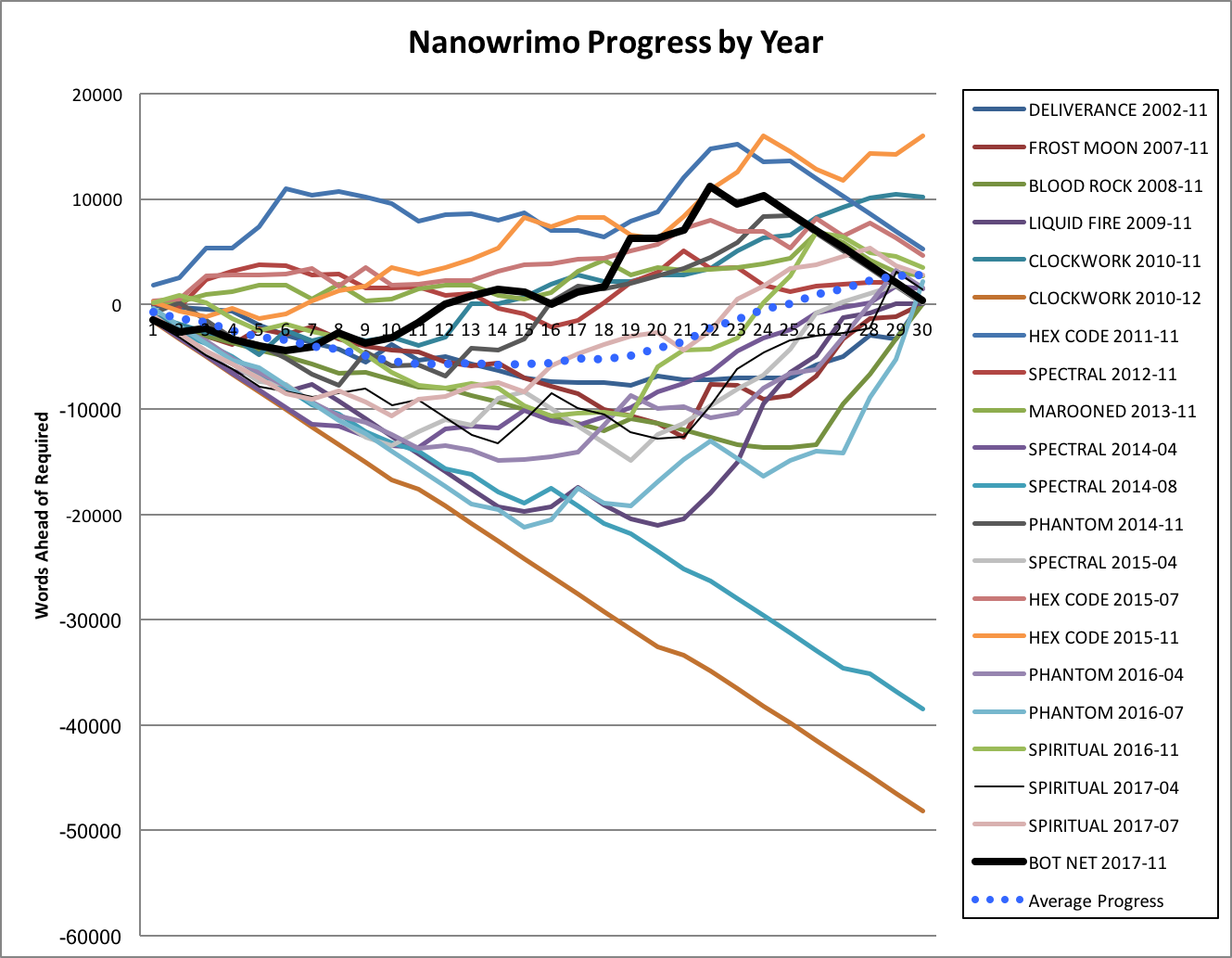 There was a time when almost every post about Nanowrimo I'd include an excerpt. Frankly, that's gotten harder to do as I've switched from doing Nano once per year to three times per year; the Nano material has become more inchoate as I blaze new paths out into story space, requiring more work to turn it into final material. But, occasionally, I can indeed include some material that gives you a flavor ...
There was a time when almost every post about Nanowrimo I'd include an excerpt. Frankly, that's gotten harder to do as I've switched from doing Nano once per year to three times per year; the Nano material has become more inchoate as I blaze new paths out into story space, requiring more work to turn it into final material. But, occasionally, I can indeed include some material that gives you a flavor ...
 Winning at Nano always feels like climbing a hill, but for me in particular it almost always feels like I start out sliding back down, Sisyphus-like, as I struggle to get a handle on the story.
Winning at Nano always feels like climbing a hill, but for me in particular it almost always feels like I start out sliding back down, Sisyphus-like, as I struggle to get a handle on the story.
 But then there comes that magic point where I need to write 1,666 words in a day and I. Got. Nothing. Then I'm forced to be creative, and the real fun stuff happens, an event I call "going off the rails". Hey, let's try to embed a tweet!
But then there comes that magic point where I need to write 1,666 words in a day and I. Got. Nothing. Then I'm forced to be creative, and the real fun stuff happens, an event I call "going off the rails". Hey, let's try to embed a tweet!
 I'm one more thing too: 200,000 words into the Cinnamon Frost trilogy.
I'm one more thing too: 200,000 words into the Cinnamon Frost trilogy.
 There are 3 published Dakota Frost novels:
There are 3 published Dakota Frost novels: 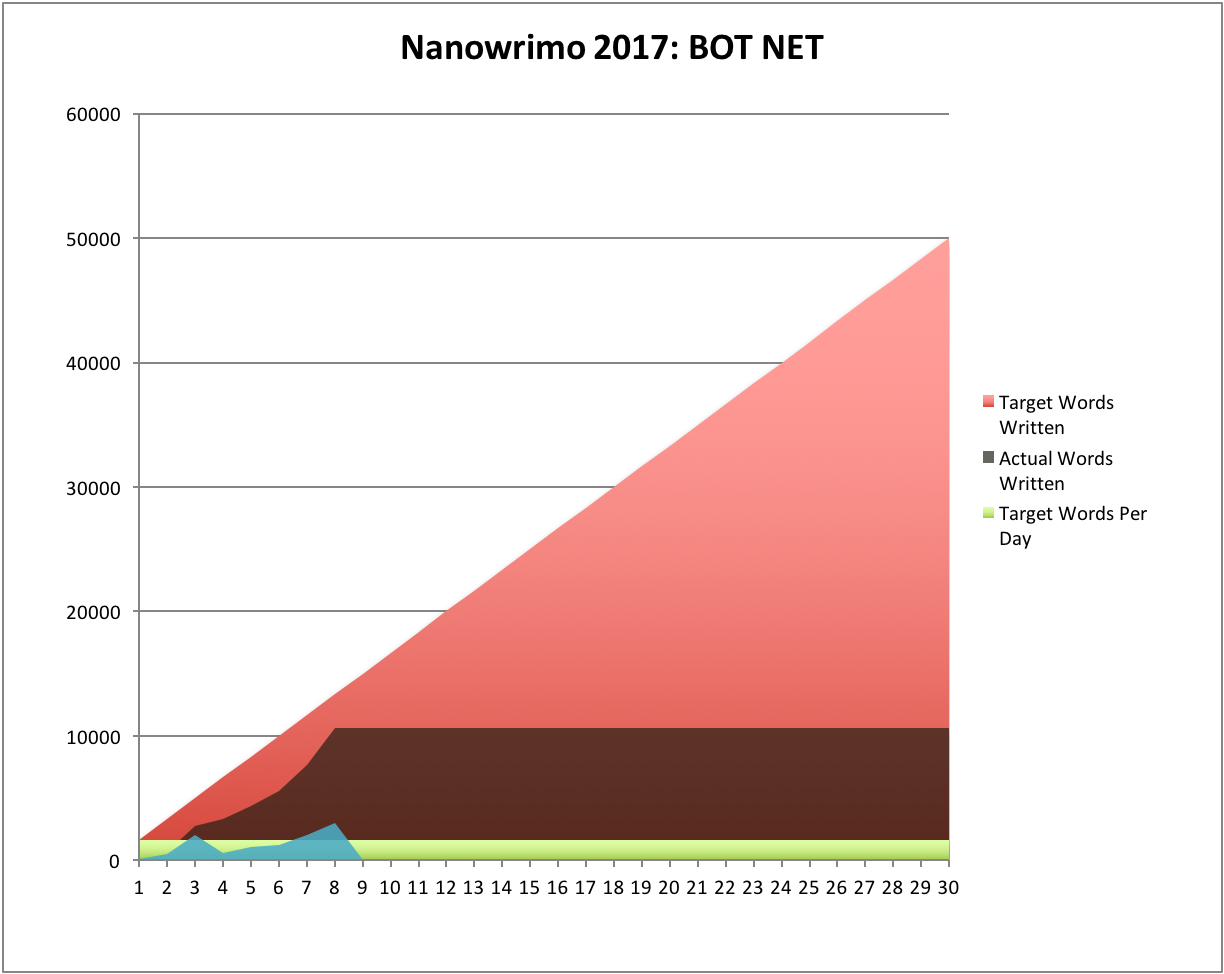 The bad news: I need to be at 13,333 words by today!
The bad news: I need to be at 13,333 words by today!
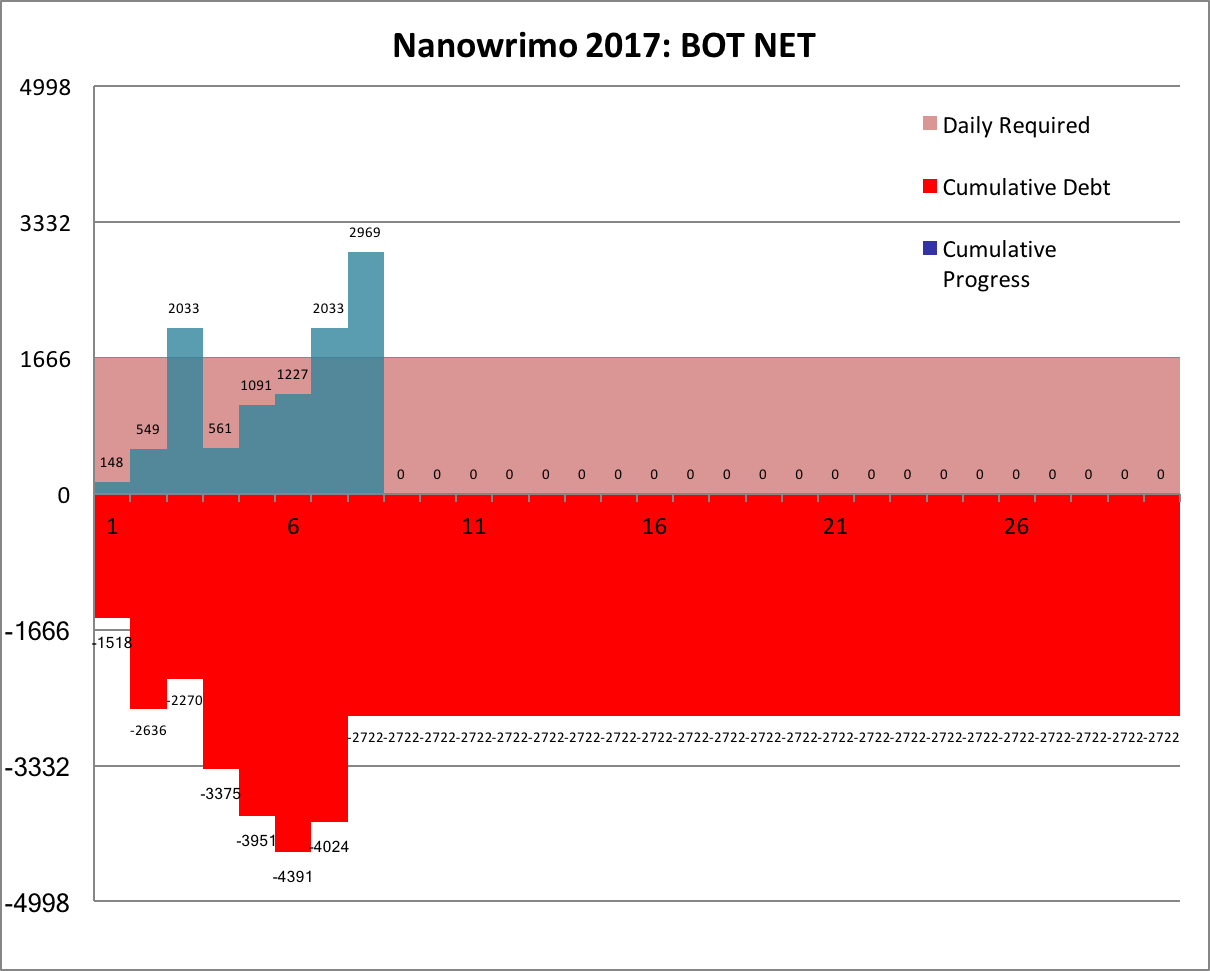 The good-bad news is, normally I'm closer to 4500 words behind at this point of Nano, so I am ahead of where I am normally behind:
The good-bad news is, normally I'm closer to 4500 words behind at this point of Nano, so I am ahead of where I am normally behind:
 What can I. say? "Don't get cocky, kid." Back to it ...
-the Centaur
What can I. say? "Don't get cocky, kid." Back to it ...
-the Centaur  Oh hey! I almost forgot!
Oh hey! I almost forgot! 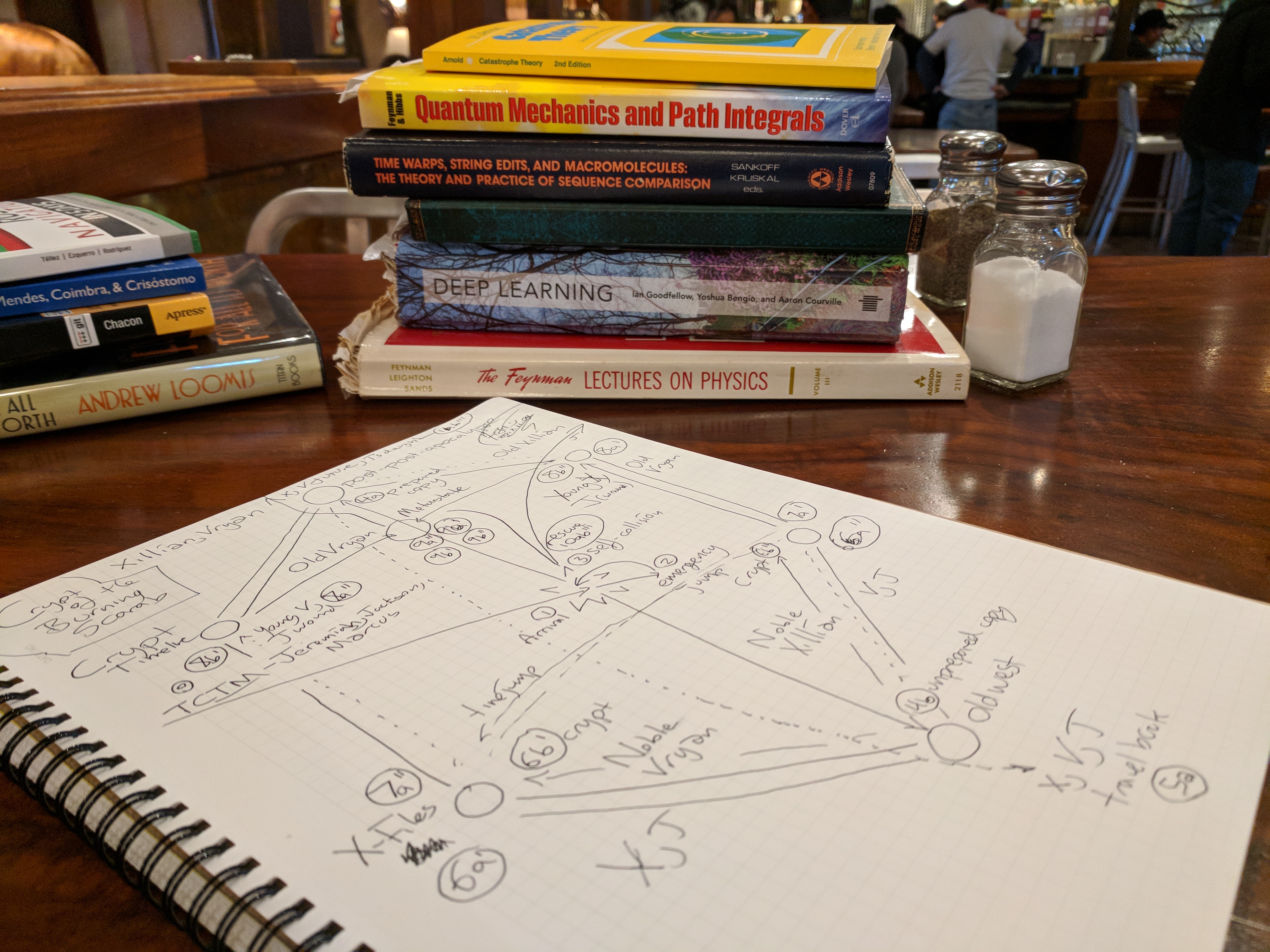 No progress on
No progress on 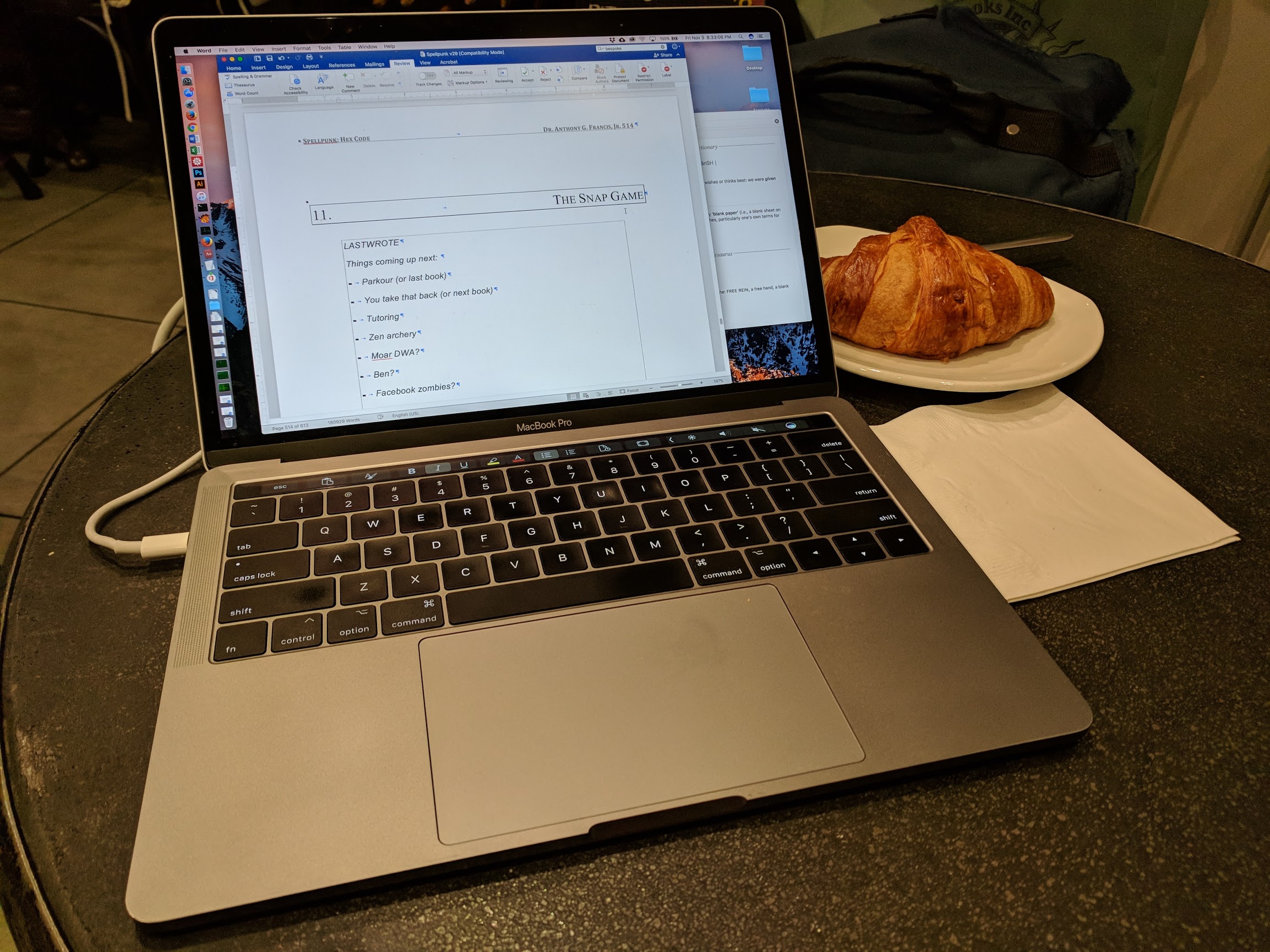 "Okay, so ... um, hi! I'm Cinnamon Frost, and I'm here to tell you that my biographer, Anthony Francis, is busy as fuck writing
"Okay, so ... um, hi! I'm Cinnamon Frost, and I'm here to tell you that my biographer, Anthony Francis, is busy as fuck writing 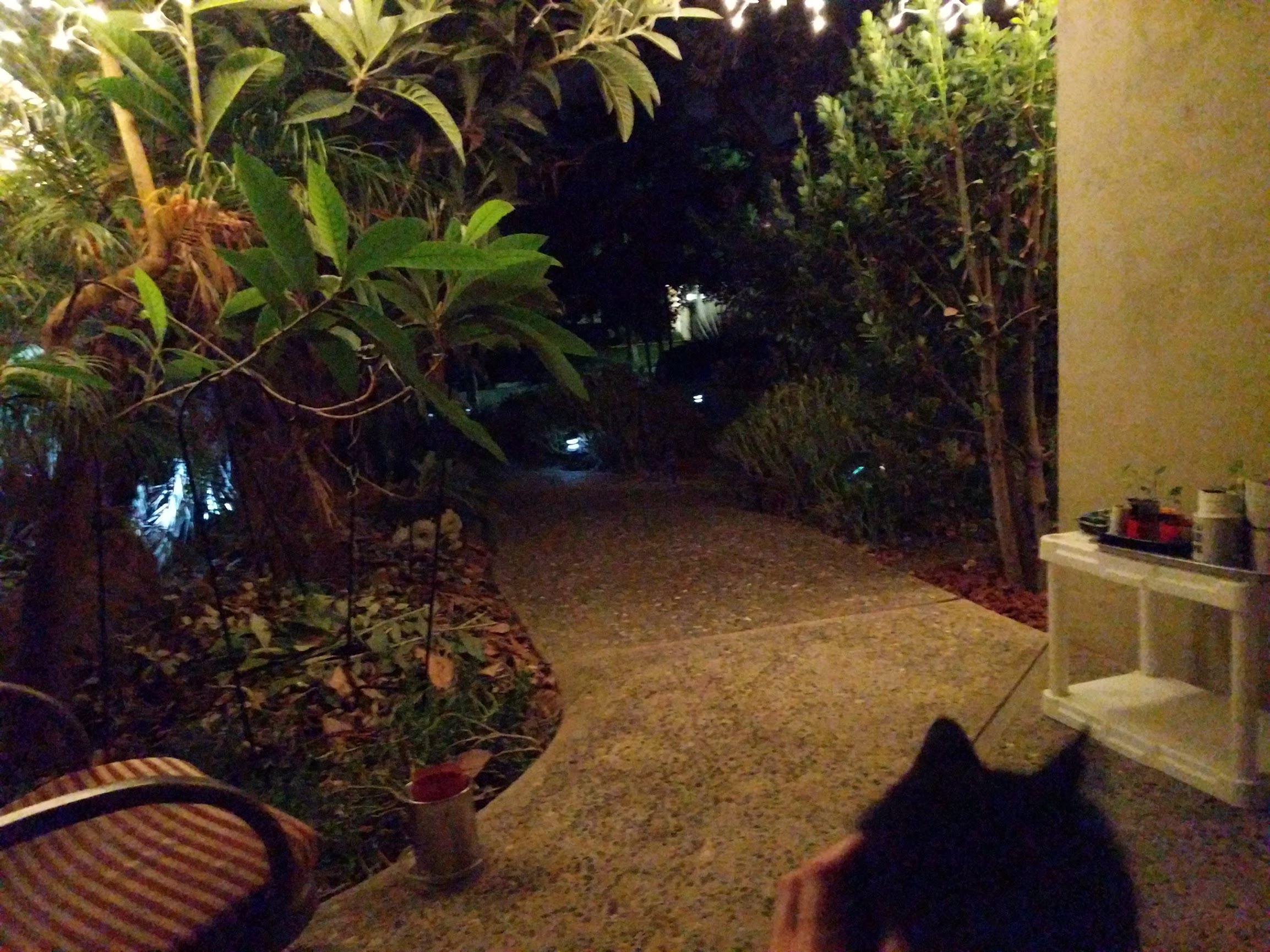 Not literally; we were far south of the literal fires, which just barely missed the homes of our friends. But so many other things have been going wrong that it felt like things were on fire ... so no posts for a while, sorry.
But tonight, I got to the last chapter of Dakota Frost #6, SPIRITUAL GOLD.
I will likely finish this chapter Saturday.
That makes today a good day.
Time for some cake.
-the Centaur
Pictured: a cat break with Loki. Not how things look right now, but how I feel.
Not literally; we were far south of the literal fires, which just barely missed the homes of our friends. But so many other things have been going wrong that it felt like things were on fire ... so no posts for a while, sorry.
But tonight, I got to the last chapter of Dakota Frost #6, SPIRITUAL GOLD.
I will likely finish this chapter Saturday.
That makes today a good day.
Time for some cake.
-the Centaur
Pictured: a cat break with Loki. Not how things look right now, but how I feel.
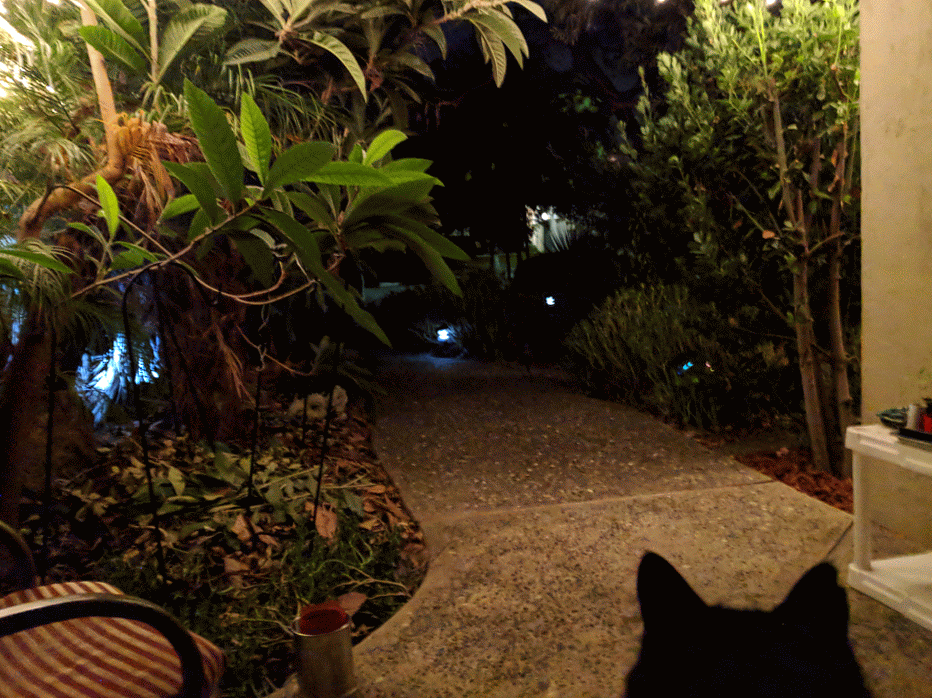

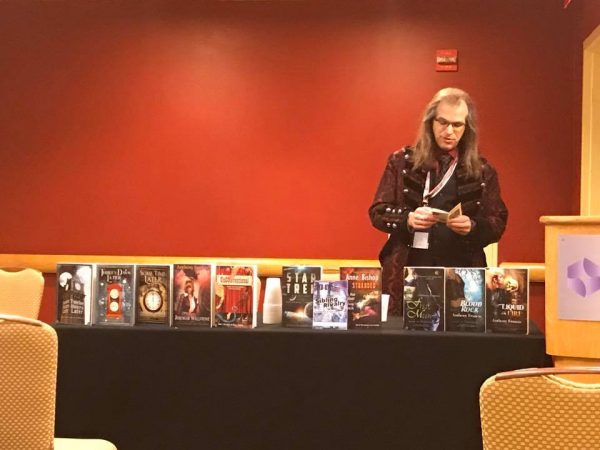
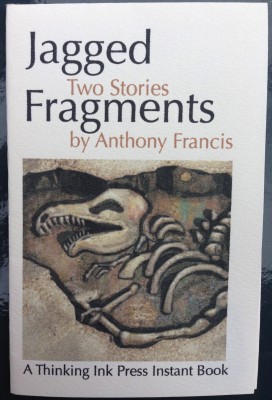 So at Dragon Con I had a reading this year. Yeah, looks like this is the last year I get to bring all my books - too many, to heavy! I read the two flash fiction pieces in
So at Dragon Con I had a reading this year. Yeah, looks like this is the last year I get to bring all my books - too many, to heavy! I read the two flash fiction pieces in 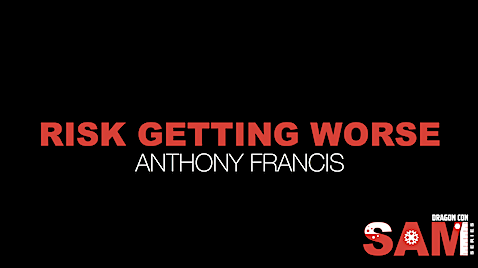 But that wasn't recorded, so, oh dang, you'll have to either go to
But that wasn't recorded, so, oh dang, you'll have to either go to 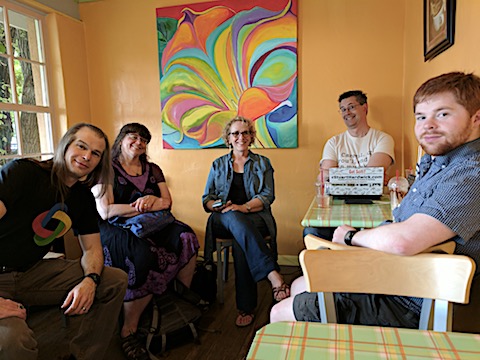
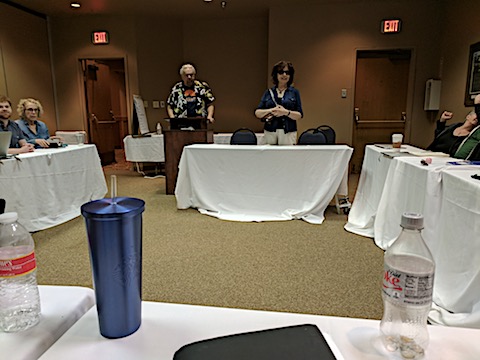

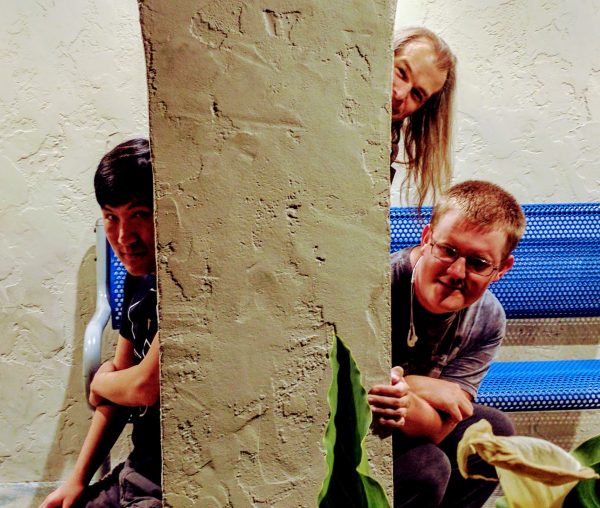 Boosting the signal ... I'll be joining my friend David Colby's panel APPLIED PLOTONIUM at 10am on Sunday at
Boosting the signal ... I'll be joining my friend David Colby's panel APPLIED PLOTONIUM at 10am on Sunday at 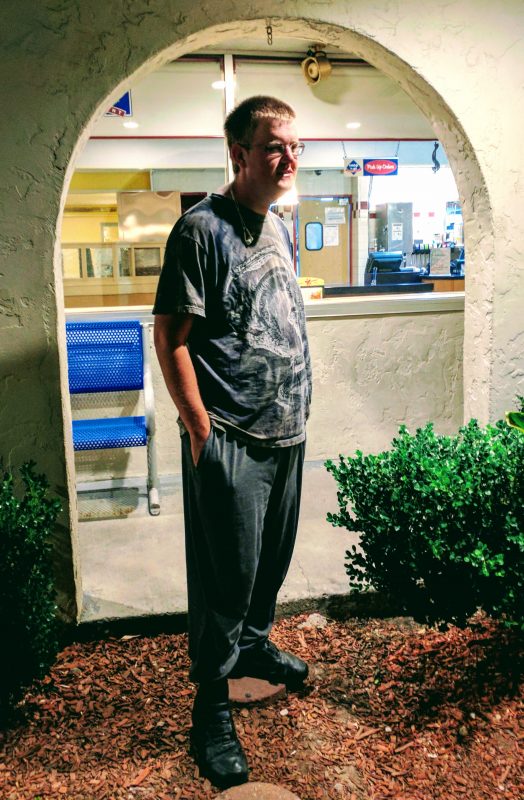 In addition to David and me, we've also shanghaied, er, convinced two of our mutual friends to join in: writer and chemist
In addition to David and me, we've also shanghaied, er, convinced two of our mutual friends to join in: writer and chemist 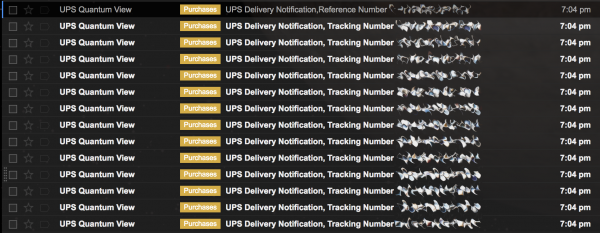 Wow. I guess a lot of books are going to be waiting for me when I get home tonight ... either the shipment of
Wow. I guess a lot of books are going to be waiting for me when I get home tonight ... either the shipment of 